#1 – Cross Game (2009-2010)
There’s a definite irony in this fact: my #1 series of the decade is the only one on the list that I didn’t blog.
Does that mean it was all downhill from there? No, it was an anime decade with plenty to offer (I’ll be briefly summarizing my thoughts on that – and this list – later tonight). But a show that ended before I started this site being my favorite show of the decade is certainly interesting. It also strikes me that to be the top show of any decade is truly an Olympian height to reach. I’m astonished that Hunter X Hunter 2011 could possibly not be my #1 series, but neither it or the show I did choose would have been my #1 for the 2000’s. That just how hard it is to claim the top spot over such an extended period of time.
That, then, brings us to the anime I did choose. And that, of course, is Cross Game. Some of you expected that after yesterday – some of you have probably never seen it. It’s not a series that gets a lot of chatter these days, being part of a genre and of a style that hasn’t been trendy in 40 years. There are more ambitious anime on this list to be sure. Most of them are more lavishly budgeted and visually flashy. Cross Game doesn’t blaze new trails in terms of theme or structure – it’s wholly in the established oeuvre of its creator. So why in the world did I choose it over all those other series?
As you would expect, that’s not an easy question to answer. One thing that springs to mind is this – of all the series on this list (and the ones not on it), which one do I think about most often? It’s Cross Game, no doubt. This is a story that touched me directly, personally and profoundly as few – and I mean very, very few – ever have. I think folks underestimate how hard it is for someone like Adachi Mitsuru to make a story like this a masterpiece. There are no crutches – so special effects, no sex, no magical realism (though one could argue otherwise), no expensive visual tricks. It:s just people talking to each other and baseball – that’s all. That’s Adachi at his best in a nutshell, really – and Cross Game is Adachi at his absolute, unparalleled best.
That’s a big statement, considering Adachi wrote the manga which became by most metrics the most popular anime of all-time, Touch. And I love Touch, to be sure. But for me Cross Game is the better work – an even more nuanced, bittersweet and ultimately affecting story by a more mature author. The level of the writing here – the depth of the characterization, the complexity of the relationships, the understanding and subtlety and trust in the audience – is virtually unmatched in manga or anime. The anime didn’t change that much from the manga because it didn’t have to, but the changes it did make were more important than it seemed at first glance (as I found out after I read the manga) and dramatically enhanced the anime experience. And the cast – with career-defining performances by top-line seiyuu Miyu Irino and Tomatsu Haruka leading the way – was impeccable.
There’s a reason why I chose the avatar I did. Cross Game impacted me deeply, starting with Kitamura Kou but extending to the entire cast and premise. The first episode was among the best ever, the OP and ED choices were as unerring as the casting. It grabbed me by the heart at Episode 1 and never let go for the next year. If you were on Animesuki at that time you’ll remember the way Cross Game captivated that audience, one normally not tuned it to sports anime at all. For a generation of anime fans like me Cross Game was a defining experience – we came to feel as if we knew these people as well as our friends and families. That intimacy is a gift of Adachi the writer, and the way his work was brought to anime by director Sekita Osamu and SynergySP.
This choice was by no means easy – not by a long shot. But when I consider the things that are most important to me as a consumer of art, there really wasn’t any other series I could have chosen as my anime of the 2010’s. It’s Cross Game, plain and simple. I can say I love it (and I certainly do) but that doesn’t even begin to capture how I feel about it – it goes so much deeper than that. This is no reflection on any other series – it’s just an acknowledgement of reality.
#2 – Hunter X Hunter 2011 (2011)
The hardest part about this is going to be not making it sound like I’m apologizing. Because truthfully I have nothing to apologize for, though even for me it’s a bit surreal to be writing that Hunter X Hunter 2011 is my #2 series of the decade. I think I probably expected it to be #1 when I first started all this, and I’ve gone back and forth (and forth – Shouwa Genroku was in the mix, too) any number of times. But in the final analysis I feel pretty at ease with my choice.
I’ll leave my reasoning for choosing the show I did as #1 for tomorrow (everyone seems to think they know, but surprises can happen). As for Hunter X Hunter, here’s the reality – without any shadow of a doubt, I’ve already written more about this series than any other since I started this site. It was in my top 3 three years running, and was #1 in both 2013 and 2014. There’s literally nothing new I could come up with to say about HxH at this point, probably. My love for it is boundless, and I’ve shared that love with you since I started blogging it (in digest form!) eight years and more ago. You either know how I feel by now, or don’t especially care.
All I can add, really, is that as I expected Madhouse’s version has aged beautifully. Togashi’s fiction is bound by no era and its tropes, and the series absolutely looks and sounds great. One common thread I see running through the shows on this list is that the commitment and genuine love of the creative staff really shines through. The people who worked on Hunter X Hunter 2011 clearly considered it an absolute privilege and were determined to represent themselves in ways they could be proud of. You have animation staff still tweeting about it, seiyuu like Han Megumi and Ise Mariya still going to Jump Festa years after the show ended to bond with fans and sign the tribute wall. Everyone involved in this series knew that it was very, very special – and acted like it.
If there’s any series that I would call the signature anime of the 2010’s for me, it’d certainly be this one. I lived and breathed it more almost three years, and shared that experience as part of a passionate community of fans. There were trying moments, especially with the barrage of hate from partisans of the 1999 series (which thankfully more or less dried up after the first year), and I developed a positively Iruma-like reflex for dodging spoilers. I suffered through the dark moments, exulted at the triumphs and ached as relationships frayed and snapped. I don’t expect I’ll ever have an anime experience like Hunter X Hunter 2011 again, either as a fan or a writer. And that’s fine – some experiences should forever be unique.
#3 – Shouwa Genroku Rakugo Shinjuu (2016, 2017)
I don’t imagine this selection is going to surprise anyone all that much, but believe me – it wasn’t easy. My top 3 has been more or less unchanged in my mind since this process started, but the order has been pretty fluid. I could make a convincing case for any of the top four series for first place, actually, but I have to choose an order. So Shouwa Genroku Rakugo Shinjuu takes the #3 spot.
Here, we have another example of anime as adaptation at its very best. Rakugo got a complete adaption, the cast was superb (Ishida Akira’s performance in particular ranks among the best in anime history for certain) and there’s no question that the story came alive on-screen even more than the page. Rakugo is a performance art, after all, and there’s no substitute for hearing this amazing group of actors ply their trade. I have no idea if any of them had ever done rakugo but it doesn’t really matter – they’re beyond convincing here.
The truth is, as with karuta or go, I really have no horse in the race where rakugo is concerned – to make me care this much about a story built around a medium I’m largely ignorant and indifferent to is part of this series’ remarkable achievement. The medium is the medium – it’s through rakugo that Shouwa Genroku tells a truly epic and deeply personal human story. As good as the first season was (I ranked it second in a very solid year) it was merely the setup – all of the payoffs came in the second. When you know what you know after watching the final episode, the earlier episodes play quite differently – but I don’t feel tricked in any way. These characters all behaved in a manner consistent with their reality. And everything fit together like the workings of an exquisite pocket watch. One thing out of place or ill-fitting and the whole thing simply wouldn’t work.
As a literary construct, Shouwa Genroku Rakugo Shinjuu has pretty much everything going for it, really. It has scope, it has intimacy, it acts as a history of Japanese popular culture itself. It’s simply a great story brought to the screen in very nearly flawless fashion – it’s as straightforward and simple as that. This is as close to perfection as I’ve seen in a multi-cour anime since Seirei no Moribito (I’d say Tsuritama sets the standard for one cour, and FLCL for short form). I never expect any year to produce a series as magnificent as this one, and I treasure those rare occasions when it does.
#4 – Mushishi Zoku Shou – (2014)
As much as I adore Mushishi and consider the anime an exemplar of manga adaptation at its absolute best, there’s a bittersweet quality for me in looking back at it. To say Mushishi was Artland’s signature series is an understatement – they produced almost nothing in the near-decade gap between the two seasons, and have since ceased to exist. And director Nagahama Hiroshi has never done another series that resonated with me. What strange alchemy allowed this otherwise unremarkable studio and director to make one of the most remarkable anime of all time?
I can’t answer that of course, but one of the most remarkable it is indeed. One is of course tempted to give all the credit to the mangaka, but while Urushibara Yuki’s manga is indeed a masterpiece there’s no denying that the anime soars in ways only anime can. The music (by Masuda Toshio) is among the medium’s most distinctive. The casting is non-traditional, starting with Nakano Yuto as Ginko (how ironic that he and his doppelgänger should be neighbors on this countdown) – most major roles are filled by stage and film actors, and children played by children. Perhaps more than any series I know Mushishi is a meditative experience, and that effect is much more powerful in anime form. I know of nothing quite like it, before or since.
I find that a word I used quite frequently in writing about Mushishi was “timeless”. It applies in equal measure to both the setting and the experience. This is a series which belongs recognizably to no period in anime because there’s never been another show like it, and whenever I watched “Zoku Shou” I was instantaneously transported back to the same state of mind the original took me to in 2005. The tone of the series has a distance to it, a detach sometimes bordering on coldness. Yet it manages to connect on a human and personal level in a very powerful way. When I tally up my favorite 100 anime episodes (not that I likely ever will) Mushishi will be all over that list – it’s incredibly consistent. It shows you as much as it needs to show you and no more, recognizing the importance of mystery to its power over the audience.
As with many of the series on this list, Mushishi Zoku Shou defies easy description – it really needs to be experienced to gain any understanding of it. In my mind this series is anime royalty in the best sense of the word – a true work of art, a triumph of the mind and the soul. I would place it on any shortlist of any singular shows which represent the medium’s depth and breadth of creative possibility. It’s one of the essential pillars of my experience as an anime viewer, and a series that will always be an important part of me. I can’t imagine a world where Mushishi doesn’t exist – if it didn’t, anime would be a much lesser place.
#5 – Death Parade (2015)
We’re down to a manageable number now, and it’s easier to wrap my head around the remaining series. The actual order of placement is still a Herculean task, but this is the block I more or less expected to be left with when we started. These five shows are all pretty much unassailable – if Shin Sekai Yori was an enigma and hard to rank, with the remaining five it’s much more straightforward. It really comes down to personal preference from here on out.
More than any series on this list, Death Parade is about one person – Tachikawa Yuzuru. He wrote Death Parade, he directed it, he storyboarded nearly every episode. This series (expanding on the brilliant “Death Billiards” one-off he did for the Anime Mirai OVA series) is Tachikawa Yuzuru. And it immediately stamped him, only 33 when production began, as one of the seminal talents in anime. He’s gone on to direct a superb adaptation of another excellent writer’s work (ONE’s Mob Psycho 100), but what I truly long for is another original Tachikawa series. Maybe he doesn’t have anything as staggeringly brilliant as Death Parade in him – maybe he said everything he needed to say with this work. But by God, I hope we get to see more.
It’s so very hard to talk about Death Parade in this sort of format, because it’s a series that defies encapsulation. It’s rich with religious symbolism both Eastern and Western and challenges the core beliefs by which most people live their lives. In addition to Death Parade one of the very best anime films – or films, period – of the 2010’s, Hara Keiichi’s Colorful, has suicide as a central theme. This is obviously a difficult topic in any context, but given the extraordinarily high suicide rate among younger Japanese it’s especially charged here. Death Parade is an extremely humanistic work, but it’s not anti-religious – rather, it views religion through the lens of the role it plays in the human psyche.
If you really want to know how I feel about Death Parade (and have seen the series already) I’ll point you towards my overly long series review post – it’s pretty much all in there and it doesn’t condense well. This series is a stupendous piece of work, for my money an absolute masterpiece. And it represents the idea of anime as high art, something that can but very rarely does transcend commercial considerations. As with Shin Sekai Yori I don’t think the production committee ever expected Death Parade to make money – it was produced because it had a chance to be great, plain and simple. We’ve never seen that often in anime and we see it less now than we ever have, but it’s the hope of finding another series like this that keeps me coming back to anime with a sense of hope.
#6 – Shin Sekai Yori (2012-2013)
Shin Sekai Yori is something of an outlier among the top 10 series on this list. While I’ve known for a few days now where I was going to place it, in the long-term it may have been the hardest series to assess. It has flaws, very real and significant ones. But it’s also one of the more remarkable anime ever produced.
I remember the premiere episode of this show as clearly as if I’d seen it yesterday. What an experience – bewildering in a good way, an assault on the senses. You knew immediately that you were in for a remarkable ride. And that ride never slowed down, though there were a few bumps on the way. A quality I noted with From the New World was that the episodic pacing was incredible – over and over again, the end credits would roll and I would be stunned because it felt like only ten minutes had passed. And in the beginning at least, the visuals were truly spectacular.
This is a series which, if I only looked at its achievements, could easily have contended for the very top spot on this list. But there are issues that can’t be ignored, most principally that some of the story choices the anime made in the second cour were pretty misguided. It’s funny – even not really knowing anything about Kishi Yuusuke’s novels I could still pick out the moments were something was clearly off. And when, years later, I did read those novels it turned out that without fail those were the times when the anime materially diverged from the source material. Here’s a top tip – Shin Sekai Yori is a masterpiece of an anime (it has to be, to rank #6 for the decade), but the novels are better. Significantly, meaningfully better. Strictly as works of written fiction I would rank them ahead of Uehashi Naoko’s Moribito novels, though they got the better anime adaptation. If you know my feelings about Moribito, you know that’s high praise.
Yet it must be said, the anime did enhance the experience in powerful ways. It represents as truly as any show can how a dedicated and talented staff can triumph over a clearly limited budget (the production committee obviously expected SSY to tank, and it didn’t disappoint). Director Ishihama Masashi is more responsible than anyone for that pacing brilliant, and his cinematography is breathtaking. I can’t say enough about the music by Komori Shigeo – his “Kage no Denshouka – Daisanbu” is my favorite piece of insert music in anime, and his contributed the first (and vastly superior) ED. The sound design ranks with Ghost Hound as the best I’ve heard in anime. And the cast is generally superb, with Namikawa Daisuke (especially) and Hirata Hiroaki delivering epic performances (Kaji Yuuki even delivers my least unfavorite performance here).
The bottom line, really, is that Shin Sekai Yori is a truly magnificent science-fiction story – on the level of Asimov, Bradbury and Clarke (and I truly mean that). I’ve loved sci-fi since before I knew anime was a word and it was sci-fi anime that drew me into the medium in the first place, and this series towers above almost any competitors in the genre – flaws notwithstanding. It will stand the test if time long after more topical and commercially successful series have been consigned to abandoned subway tunnels deep below Roppongi.
#7 – Tsuritama (2012)
These decisions just keep getting harder. I do find the last few series on the list separating themselves into “pods” at least, but choosing within those pods is the really brutal part. All of these last 7 shows are great – all the shows on this entire list are great. But choose I must, so for my #7 series my choice is Tsuritama.
There’s a real philosophical question in play here. And part of me hates myself for putting Tsuritama behind shows which are less perfect, and which I love less on a personal level. Am I betraying a bias in favor of “weight”, of heavy drama, over optimism and comedy? I can’t deny the possibility but I can be honest in saying I literally couldn’t decide what to choose here until I typed the name of the series. What I can say for sure is that I love Tsuritama beyond all reasonable measure. I adore it, I respect it, I admire it. It’s truthful and insightful and kind and utterly brilliant, and so obviously an expression of pure dedication on the part of the staff and cast (when asked about the series’ commercial prospects the staff reply was “Pretty much nothing”). And for a full-length (12 episodes in this case) it comes about as close to flawless as any series I’ve ever watched.
2012 was a great anime year, and Tsuritama was my favorite series from that year. Nakamura Kenji is a director of staggering talent and staggering inconsistency, a man who’d done brilliant work before but never made a series which connected with me emotionally like this one (and hasn’t since). Oono Toshiya is a prominent writer who was basically unknown in anime when he wrote Tsuritama, and nothing he’s written since has come close to it in brilliance. Oono has said that he wrote this show as a sort of letter of encouragement to his teenage self, and I think that feeling imbues the series from top to bottom. It should also be noted that the cast is spectacular, especially Miyu Irino (a given, basically) as the “Little Prince” inspired Haru and Ohsaka Ryouta in a stunning breakout performance as Yuki. Also of note is the soundtrack by Kuricorder Quartet, which in addition to being amazingly listenable suits the material better than any soundtrack I know.
The thing is, Tsuritama is absolutely a weighty and deep project. The writing is full of literary allusions and emotional subtext, the visual style is experimental and groundbreaking, the emotions at play deep and profound. But ultimately it’s just a totally human experience – a life-affirming and empathetic journey to happiness. I knew from the brilliant first episode – especially the impossibly charming scene when Yuki grasshoppered his way through every room in his new house snapping photos on his phone – that we were in for something very special here. There are shows which I will rank a little higher than Tsuritama on this list for various reasons, but I can honestly say that there are no shows which I love more.
#8 – Fullmetal Alchemist: Brotherhood (2009-2010)
We’re at the point now where none of this is remotely easy, and it becomes increasingly clear just what a brutal task compiling a “Best of the Decade” list for anime is. Every name I look at I think “I can’t possibly rank that this low, can I?”. But I have to choose, so for the #8 spot I’m choosing Fullmetal Alchemist: Brotherhood. And I’m certainly not alone in praising it – it’s the #1 ranked anime of all-time on both Anime Planet and MAL, and all but the most curmudgeonly manga fans hold it in deep respect. My life would have been easier if I’d only allowed series which premiered in the 2010’s on this list, but I feel as if my rules should be consistent – and that meant that FMA: Brotherhood was a lock for the top ten.
The reasons for that are many, but the sum of them is that I would have considered this show the best shounen adaptation of all-time until Hunter X Hunter 2011 came along (I suppose that’s a spoiler but – come on) – I’d take the Rurouni Kenshin Kyoto Arc over it, but you have to consider the entire run. It’s a majestic, powerful, beautiful (visually and otherwise) series. Of course a lot of credit for that goes to Arakawa Hiromu, but Bones – even in this generally faithful anime reboot – still had to make some changes. They had to finesse the problem of not spending too much time on what they’d covered in the original anime without seeming to rush through it. They had to recast some roles, and find a way to make this often very weighty story never feel ponderous (which they did more effectively than the manga, I’d argue). All in all, it’s a superb feat of adaptation by arguably anime’s finest studio.
So why “only” #8? As I said this is far from easy – we’re in the Himalayan Heights now, and all these series are masterpieces. Maybe FMA itself has the odd quirk here and there – there are a few plot elements which Arakawa-sensei inserts which don’t totally work for me, and some arcs run a little too long at the expense of others which needed more time. In the end I think I love this series just a hair less than the ones above it, strictly on a personal level. But these are points of minutiae, really – Fullmetal Alchemist: Brotherhood is one of those series that should be used as teaching material at anime schools, because this is how it’s done. There will always be outliers who prefer the first series, just as there are those who prefer the 1999 Hunter X Hunter to the 2011 (and they’re both wrong, ROFL) but truthfully, you have to search pretty hard to find folks who aren’t admirers of this show. And there’s a damn good reason for that.
#9 – Kyousougiga (2013)
Kyousougiga is an anime that defies easy categorization. It started out as a little-seen ONA, transitioned through five web shorts, then finally graduated to TV in an unorthodox “10.5 episode” format. Writing was credited to the standard Toei collective pseudonym and as far as I know, the identity of the actual creator has never been acknowledged. It expressed little interest in conventional narrative form and structure, and was as often befuddling as it was beguiling.
Yet here it sits, at #9 on my list of the best anime of the decade, and if anything I’m second-guessing myself for not placing it higher. A lot of what I wrote about could have been said about FLCL, and that’s no coincidence as that seminal show (it would comfortably place in my Top 5 of all time) was the most obvious inspiration for Kyousougiga. I suspect that in an earlier time Kyousougiga would in fact have been an OVA, as it seems to suit that structure very well both in narrative and thematic terms. As I said when I reviewed it, it’s not only a series that reminds me why I love anime – it’s a series that reminds me of why I started loving anime in the first place.
It would be hard for me to overstate just how brilliant I think this show is on so many levels. It’s a spectacular introduction of genius director Matsumoto Rie to most of the anime world, a visual masterpiece of the highest order. The soundtrack is spectacular. The writing is incredibly layered and complex, loaded with symbolism and hidden meaning. But what’s really surprising about Kyousougiga is in fact its heart – this is no cynical, detached intellectual exercise. Ultimately it’s a series about family love, and how those we love are uniquely able to cause us pain. If you love Japanese history and mythology, family drama, visual sweep and creativity, zany comedy – most of all if you simply love anime – Kyousougiga is a timeless masterpiece.
#10 = Boku dake ga Inia Machi (2016)
And so we start the Top 10, and placing Boku dake ga Inai Machi tenth is a reminder of just how many incredible series aired in the 2010’s. Ten years is a long time for any medium but as with movies or books, not all decades are created equal. I hope the 2020’s produce just as many masterpieces – based on the overall trends I’m seeing in the past couple of years I’m skeptical of that, but hope springs eternal.
There are bits and pieces of several of the reasons cited already for other series in my reasoning for including Boku dake. Its best was absolutely astonishing – again, there are a couple of episode surely in my top 20 all-time with plenty of room to spare. But the mean episode was still great in my view. People love to rip the ending – though to be fair they rip the manga ending too, just not quite as loudly. I disagree with most of the criticism because, frankly, I think most of it stems from not really understanding what Sanbe Kei was trying to say with it. But that’s an argument neither side is going to win, so there’s no point in rehashing it.
Certainly we’re not talking about perfection here. 12 episodes wasn’t an ideal number (15 would have been great), because the anime had to rejigger Sanbe’s ending to make it work (though again, readers didn’t generally get that either) and while the substance is the same, the narrative is more awkward. But in the final analysis Boku dake ga Inai Machi was a masterpiece to me even if you don’t share my appreciation for the ending. The themes Sanbe explores are almost unmatched in manga for depth and complexity, and the anime does wonderfully with the tricky job of transitioning the complicated timelines to the screen. It’s a series both beautiful and terrible, both visually and existentially, and explores not just the heart of darkness but the milk of human kindness with elegance and tremendous sensitivity. For certain, this is one of the greatest seinen manga adaptations of any decade.
#11 – Ano Hi Mita Hana no Namae wo Bokutachi wa Mada Shiranai (2011)
Believe me, at this point I’ve heard all the criticisms of Ano Hi Mita Hana no Namae wo Bokutachi wa Mada Shiranai (most of them in the comments on this site). It’s sappy, it’s manipulative, it’s melodramatic. All I can do in the face of that is quote the noted philosopher George Costanza: Jimmy crack corn, and I don’t care.
Keen observers will note that I’m ranking AnoHana above another series from 2011, even though I initially ranked it lower in the year-end Top 10 list. I’ve already touched on the reasons why this can be a thing, but in this specific instance I think there’s just something larger than life about AnoHana that causes it to live on prominently in my memory. Okada Mari definitely applied the “go big or go home” mantra in the writing here, but it worked in a way that’s never quite been matched for me in any of her subsequent works.
In all my years of watching anime, few series have emotionally wrecked me like AnoHana. It’s not subtle – it’s like surgery with a hacksaw, but it still cuts you up. I still remember going to Chichibu a few weeks before I was leaving Japan in 2015 and visiting Jisshouzan Jourin-ji, the temple made famous by the series. I stood on the steps and shouted “Mada nai, yo!” to the empty air, and felt all the emotions inside me well to the surface. There are few anime that could ever get me to pilgrimage in the first place (I almost never have, in fact) and fewer that could provoke that kind of reaction. AnoHana is just special – it touches the heart in a very direct and powerful way. For me, that vastly overshadows whatever flaws I might find in the writing. It’s a series for the ages – and if this list is about celebrating anything, it should be that.
#12 – Made in Abyss (2017)
Not many series on this list – august though it is – can be said to be the singular example of any one element of anime production. There are obviously other contenders, but I would be tempted to apply that label to Made in Abyss when it comes to visuals. The job Kinema Citrus did (and continue to do, through the theatrical films) with this series was no less than astonishing. I’m not certain I’ve ever (outside of Ghibli) seen a fantasy world so lovingly and brilliantly depicted in anime.
There’s a lot more to Made in Abyss‘ brilliance than that, of course. The staff headed by director Kojima Masayuki was exceptional. Bringing in Yoshinari Kou specifically for “monster design” was a stroke of genius. Kevin Penkin’s music was soaring and intimate in turn, a perfect fit for the material. Art Director Masayuma Osamu is a Ghibli veteran and brought their unmistakable aesthetic to the design. Character Designer Kazuchika Kise cut his teeth at Gainax and his remarkable career has spanned a broad spectrum of great works, up to and including his work with visual genius Shinkai Makoto. The list goes on and on.
I’m well aware of the problems some viewers had with Made in Abyss, and indeed had some of those issues myself. Tsukishi Akihito has a fascination with nudity and humiliation of children that borders on the fetishistic, and in no way is MiA an easy series to watch. But it’s ruthless by design, just as Hunter X Hunter is – the disconnect between the adorable characters and what happens to them creates a cognitive and emotional dissonance that’s very powerful. This series is special – it’s wondrous and horrific and exhilarating and despairing and everything in between. And the job Kinema Citrus did bringing it to anime was an unqualified triumph.
#13 – Ikoku Meiro no Croisée (2011)
Ikoku Meiro no Croisée is another one of those series that I love above and beyond objective explanation. Yet it is objectively a great series – of that I have no doubt. It’s been almost as long since it aired as Sarai-ya Goyou, and at least five or six years since I rewatched it, so my memories aren’t razor sharp. Yet the emotions I felt when watching it feel as fresh as if I was experiencing them this morning.
Ikoku Meiro is an interesting case study, a perfect synergy of material and studio. Satelight has always had the strongest foreign influence of any of the major TV anime production houses, and indeed has employed French animators like Thomas Romain and done production work for French television. It’s another of those “labor of love” shows where the care and passion put into it by the creators is visible in every frame. It’s emotionally powerful and a quintessentially human story, but also a fascinating observation on the differences between Japanese and Western culture. I also consider it a very important series in the evolution of LiA, and my own as an anime writer.
Sadly the La Croisée dans un Labyrinthe Étranger manga was never finished because mangaka Takeda Hinata died in 2017 at just 39 years of age. The anime was never going to get a sequel of course but the manga was likewise wonderful, and the tragic loss of a talent like Takeda (who also illustrated GOSICK among other works) is a real loss for manga fans everywhere.
#14 – Akatsuki no Yona (2014-2015)
The last few series have been a bit of a conceptual exercise, decisions based on what one considers to be the most important qualifiers for a list such as this one. Akatsuki no Yona is totally different. This show is here because it was great, plain and simple. There won’t be an easier call for me anywhere on the list.
Akatsuki no Yona came along right in the middle of an amazing run for Studio Pierrot, a studio seemingly almost everyone loves to hate but who can do a faithful manga adaptation with the best of them, and has a concertmaster’s ear for shoujo fantasy. Along with Madhouse they dominated the top part of LiA’s Top 10 lists in this part of the decade, and among all the great series they produced there’s no question Akatsuki no Yona was the most impressive visually. But it was the incredible story and characters that made the series a classic. It was a spellbinding and emotionally powerful series from start to finish.
Now, five years later, I can say that the anime didn’t even get to the best part of Kusanago Mizuho’s manga. It continues to captivate me to this day, and even if the anime ended up being an incomplete adaptation it was still a successful one because it brilliantly communicated the essence of why the manga is the masterpiece it is. Akatsuki no Yona is among the finest shoujo fantasy series ever created but in truth, it transcends genre and demographic – it’s just a great story, plain and simple.
#15 – Vinland Saga (2019)
I realize it’s a bit of a gamble putting Vinland Saga on this list given that about 15% of the series is still to run. But I can’t disqualify currently airing shows so I just have to take a leap of faith it’ll stick the landing. And there’s not much reason to think it won’t based on what we’ve seen so far and the general consensus that the anime hasn’t even gotten to the really good stuff yet.
I’ve been giving my reasons for loving this series every week for two seasons, so I don’t think I have to elaborate all that much now. There have been a couple of minor bobbles – a bit too much shounen embellishment early in the series, a bit too miraculous (ironic, that) a transformation by Canute. On balance, though, Vinland Saga is a remarkably subtle and thoughtful series, and while manga readers have (as ever) found reasons to complain, has been gorgeously adapted by Wit.
The big question at this point is whether we’re going to get another season, and while I’m not hugely optimistic I do think that’s a tangible if modest possibility. The director, Ubata Shuuhei, may even have hinted at it in a recent interview (if you hold it up to the late just right and chant an incantation three times). We can only hope – if not, at least the manga translations are up to date…
#16 – Chihayafuru (2012, 2013, 2019)
If yesterday’s entry was all about the impact of a series’ best work on its placement, this one is all about balancing the highs and lows of a series’ entire run. Chihayafuru the anime hasn’t gotten to the really rough patch yet IMHO, but there’s no doubt for me the second season was a step down from the first. That’s a contrast with Uchouten Kazoku, where the two seasons were almost even (I did think the first was a hair stronger, but they placed in the same spot at year’s end because S2 aired in a weaker year).
Still, it’s here – and it’s here mostly because the first season had me as emotionally invested – and wrecked – as any series of the decade. Mind you the second was still excellent (#10 at year’s end) and the third has thus far been better – if the show had really jumped the shark it’d never have made it here. But it’s that first season that does the heavy lifting. It’s truly magnificent, starting with one of the best opening episodes of the decade and never really losing steam. It was that first season that found the perfect balance between personal drama and karuta that Chihayafuru has never quite found since, and Taichi Tuesdays were one of the most intense anime experiences of my life.
#17 – Uchouten Kazoku (2013, 2017)
Now we’re getting into the minutiae of why a series should be ranked ahead of another series. Uchouten Kazoku is a wonderful show, no doubt. Both seasons placed in the middle of my year-end Top 10 lists, and it was a remarkably consistent performer throughout the two cours it aired. Even so, it’s on this list at the expense of series that ranked higher in both years. So why is it here?
Simply put, I chose The Eccentric Family because at its very best, it was truly sublime. Perhaps if I took the mean episode, it wouldn’t have cracked the decade’s Top 20. But there are two episodes that would rank in my all-time anime top 20 eps, probably top 10 (and one certainly top 5). Factoring that in with the fact that even in “normal” mode it was still really damn good, Uchouten Kazoku jumps the queue a little. Part of the nature of this compilation is measuring which shows have stayed with me most strongly over the years, and those masterpiece moments from this one are deeply imprinted in my memory.
#18 – Sarai-ya Goyou (2010)
You’d have to forgive me if you thought I put Sarai-ya Goyou on this list for sentimental reasons. To say it’s connected to the earliest days of this site is an understatement – it was, in fact, the subject of the very first episodic anime post I ever wrote (Episode 9, as it happens). It was the #1 series on my first-ever year-end Top 10 list (a year I remember as being pretty decent, though not great). For LiA, it’s the beginning of all anime beginnings.
The truth is, though, that House of Five Leaves made the cut because it’s a great anime, plain and simple. It’s been a very long time since I watched it so my memory isn’t razor sharp, and I have no doubt that my tastes as a viewer have evolved over the intervening years. But I know quality when I see it, and the late-lamented Manglobe’s adaptation of Ono Natsume’s manga was pure quality. Mochizuki Tomomi handled direction and series composition (and storyboarding, and sound direction, and other roles) and he was a perfect foil for Natsume’s particular sensibility.
One got the sense in watching Sarai-ya Goyou that it was a labor of love – that the staff cared deeply about every detail and strove to make it perfect. That’s a common theme in this list, and even if it was a little more common at the time this series was made then it is now, that quality is always rare. It’s striking how much anime has changed in what’s really the blink of an eye, but here we are – and that too is an interesting element of putting this list together for me.
#19 – Udon no Kuni no Kiniro Kemari (2016)
It might be a good idea to remember that thing I said about personal choices yesterday…
While Udon no Kuni no Kiniro Kemari is on this list because I love it, just as the show below is, it does have one slightly more objective distinction that I think seals its place here. Of all the anime adaptations of ongoing manga I’ve watched (I don’t know the number, but it’s surely well into three digits) this series did the best job of fooling you into thinking it was written specifically for the anime run. Never have I witnessed a long manga adapted into a single cour (lord knows, there are a lot) which had such natural pacing and such a convincing ending. The manga isn’t translated so I have no idea how it ended, but I have a hard time imagining it did so with more poetry and poignancy than Lidenfilms’ anime did.
On top of that, of course, it’s simply a wonderful series. This is magical realism as it should be used, and as a non-romantic love story Udon no Kuni has few equals in anime. This show gets family on the molecular level, the bonds it exerts over us even when it causes us pain. It’s also a love letter to Kagawa (one of my favorite prefectures) and a thoughtful take on the dilemma of provincial Japan as its youth increasingly flee to Tokyo to make their futures. Even the omakes and previews hit the bullseye every time. Udon no Kuni is a powerful and beautiful piece of work, an insightful examination of the emotional and practical challenges of being a young adult trying to break free of the past without losing your connection to it.
#20 – Tsuki ga Kirei (2017)
One thing almost a decade of year-end lists has taught me is that choosing the last spot is usually tougher than choosing the first. The reason is obvious – unlike the “losers” in the #1 race, whatever I eliminate for the last spot is out altogether. There are some great shows that won’t make this list, which is hardly a surprise given that it only allows for an average of two per year (though by no means does it work out so evenly). It pains me to think about what almost nabbed this spot, but didn’t.
In the end, I always default to the personal choice in recognition of the fact that this is a list of my favorite anime, not an attempt to authoritatively name the best. And I really, really loved Tsuki ga Kirei. It’s a wonderful romance anime, which is a rarity in anime this decade. It’s a middle school setting, also rare (but seemingly less so in very recent days). And most importantly, it’s simply brilliant – a substantial, believable, and often heartbreaking tale of first love. It accomplishes what it sets out to do almost flawlessly. It’s a high-water mark for director Kishi Seiji, writer Kakihara Yuuko and studio .feel – the latter of which has stamped itself as an interesting and ambitious upstart in the world of anime production. I’d love to see more original series work from Kishi and Kakihara, especially the director.
Simple, yet profound is the closest thing to a magic formula there is anime, and Tsuki ga Kirei masters it. “To think that someone I loved could love me back… I thought it must have been a miracle.” It would be hard to exemplify simple yet profound better than that. I said as it finished that Tsuki ga Kirei was “the first love story that anime has been waiting to tell and never has”, and I feel every bit as strongly about that now as I did then.
Especially given that I’m about to celebrate my own 10 year anniversary as an anime writer, there was no way I could let the twenty-tens end without some sort of retrospective. My own year-end Top 10 lists make an interesting starting point, and of course the almost-perfect overlap between my own years as an anime blogger and this decade makes the exercise especially interesting for me. I’ll say this much – the way I ranked shows at the end of their respective years is not a perfect match for the way I rank them now. We change, our perspective changes, re-watches and life change our opinions of individual series. And like people, some anime simply age better than others.
I’ve thought for a long while how best to tackle this project, and in the end a countdown seemed the best way to go – that’s what I’ve traditionally done here at LiA. Because I still have my year-end Top 10 countdown to consider, I’m going to start this one at the beginning of the month and lead directly into that one (though this list could have spoilers for that one of course). As to my thoughts about the decade as a whole it’s probably best to save those mostly for the end, but it must be pointed out that I can’t impartially compare this decade in anime to any that preceded it. I’m simply far too invested – I was much more engaged, in no small part because of this website. And I have a sentimental view of the 2000s as that was when I really became an anime fan. The volume of new series in the 2010s certainly exceeded any other decade – as for overall quality, I simply don’t consider myself capable of making that call.
Now, as to rules – I’m going to apply the same standard I do for yearly lists. That is, shows that started in 2009 but finished in 2010 are eligible, and shows that started in 2019 and finish in 2020 are not. For multi-season series I’m going to rank based on the entire run, not any one specific season or even year (if a show ran that long). However if we’re talking about a true sequel, say Blood+ and Blood-C just as an example (spoiler: Blood-C didn’t make the list) I’m considering each show individually.
Lastly, feel free to take a stab at predicting my Top 20 in the comments below. As ever, I’ll figure out a cookie to give to whoever comes closest.


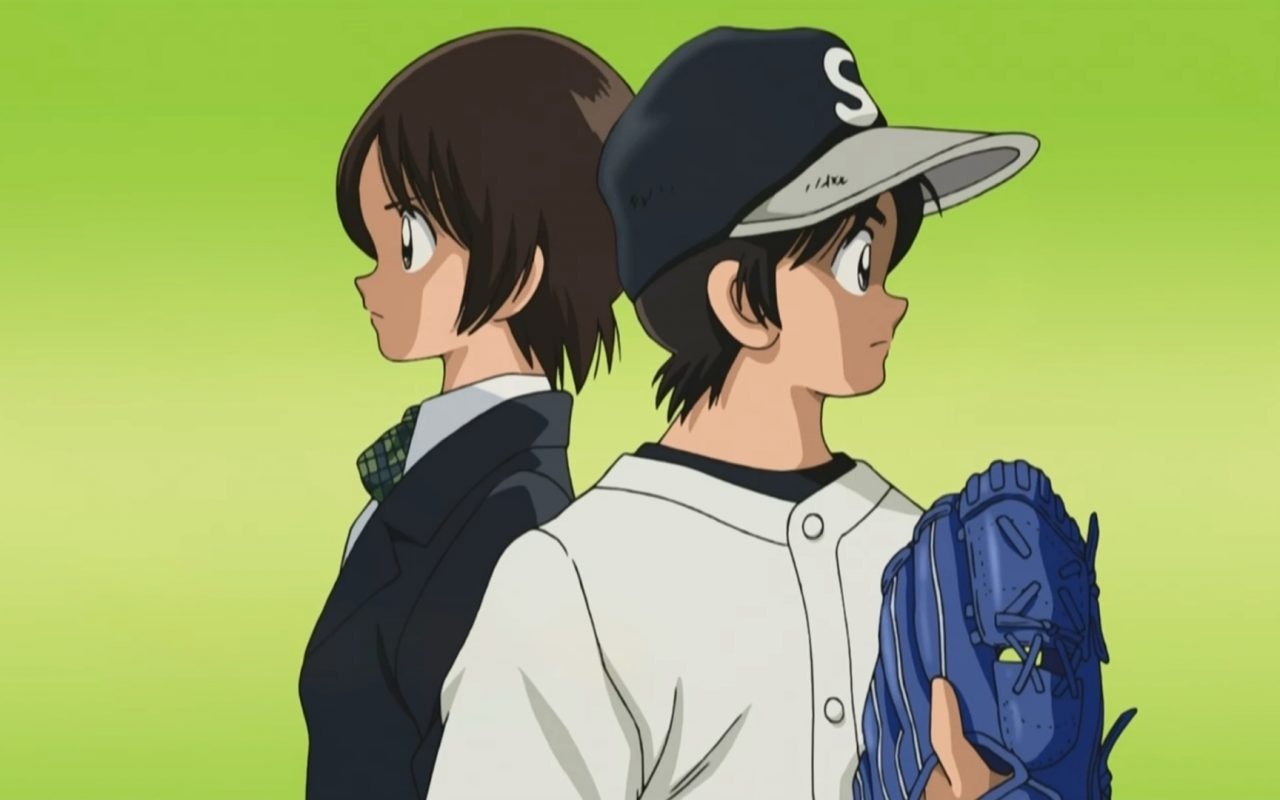
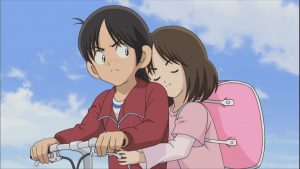

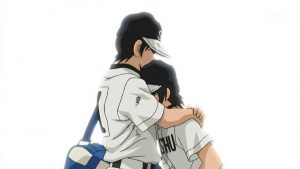
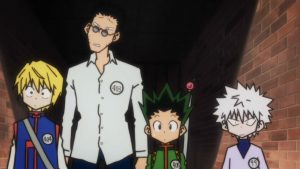
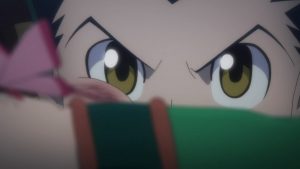
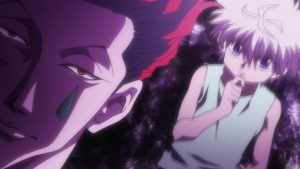
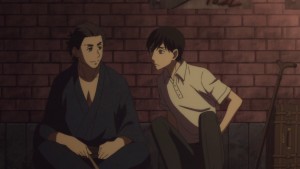
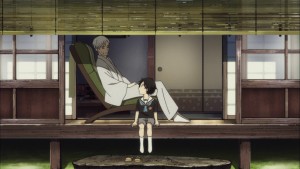
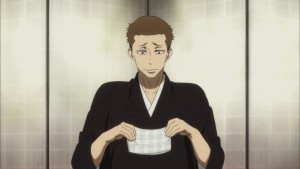
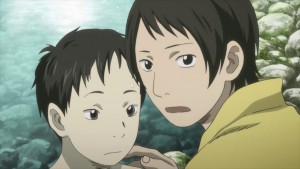

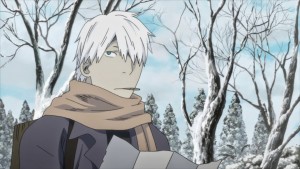
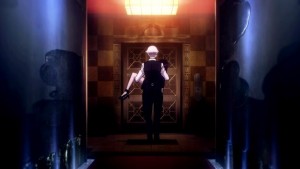
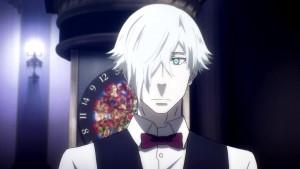

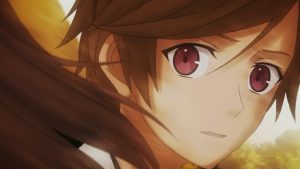
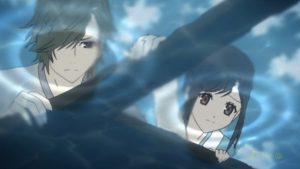
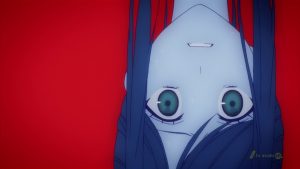
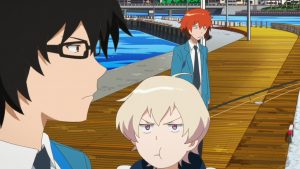
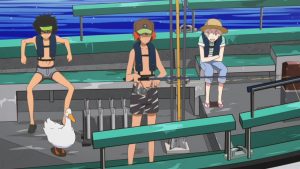
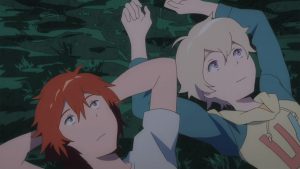
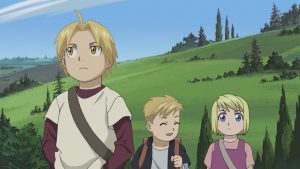
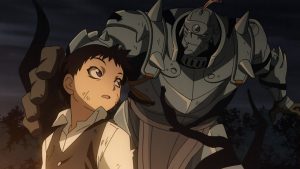
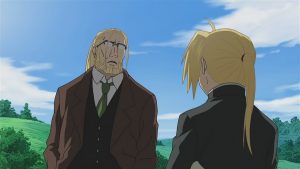

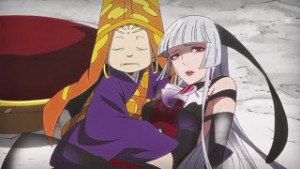
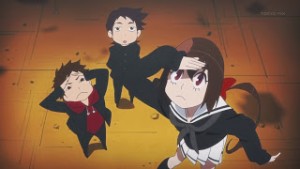
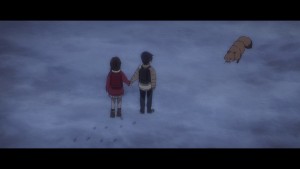
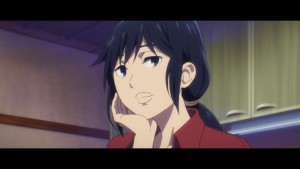
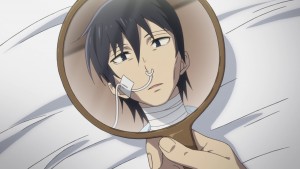

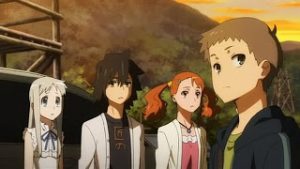

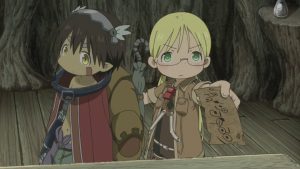
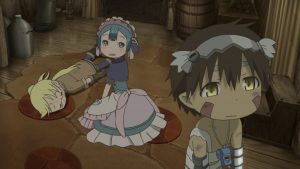
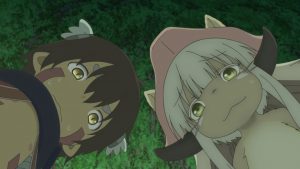



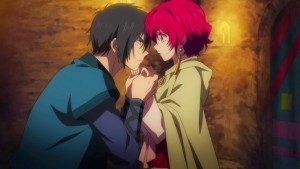
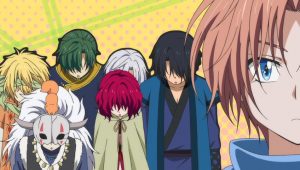

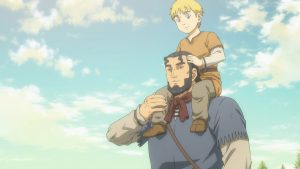
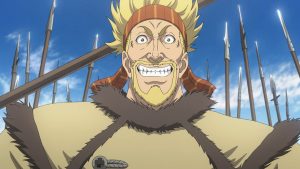

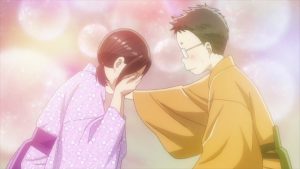
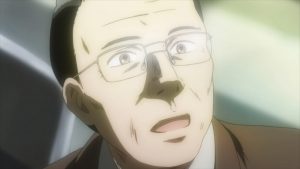
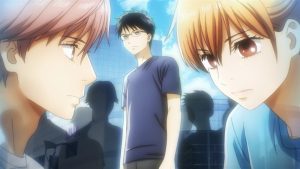

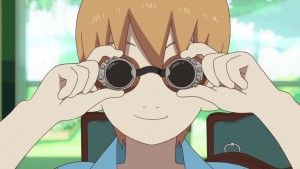
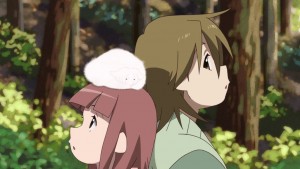
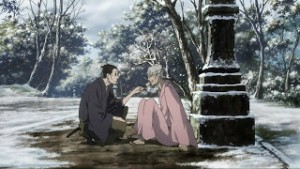
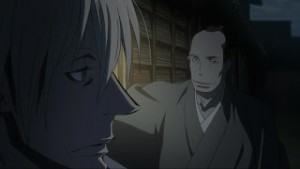
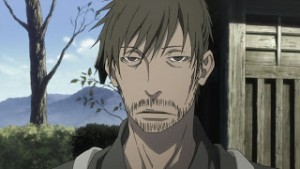
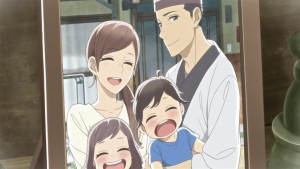
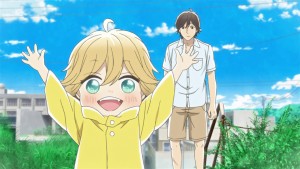
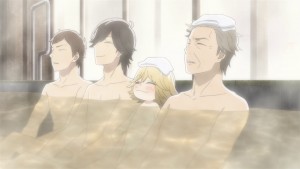
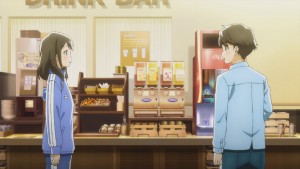
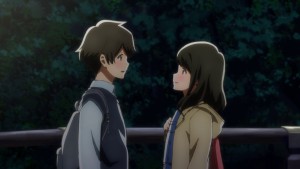
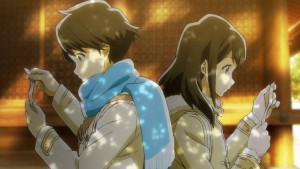
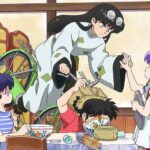

Derrick
November 30, 2019 at 11:12 pmI’m tempted to read your archive just to answer that. But I might just notice the lower quality and quantity of passable anime and that might be depressing.
still there might be HxH there. the top 20 majority might be the elite ones, and several A-/B+ that caught your heart
Krize
December 10, 2019 at 4:53 amI’ve got high hopes for Shin Sekai Yori and Parasyte landing somewhere in upper 10, personally.
Guardian Enzo
December 10, 2019 at 6:28 amInteresting…
Krize
December 20, 2019 at 6:46 amWow, well, no matter what you pick for #1, i’m going to either be very (pleasantly) surprised the latter series made the top spot, or shocked that it didn’t make the cut for top 20 at all! I guess we’ll see!
yustin
December 1, 2019 at 2:46 amDo you watch 3-gatsu no lion till the end of season 2? I’ve noticed from the review that you drop the anime early. It has improved a lot since season 1.
I hope it on your list.
Alonom
December 1, 2019 at 5:02 amOhh count me in
Top 20 of the decade
1. Hunter x Hunter 2011
2. Cross game
3. Showa Genroku Rakugo Shinju
4. Tsuritama
5. Mushishi
6. Anohana
7. From the New World
8. Erased
9. Death Parade
10. Hourou Musuko
11. Vinland Saga
12. Kyousogiga
13. Dororo
14. Mob Psycho 100
15. House of the Five leaves
16. Akatsuki no yona
17. Baby steps
18. My Hero academia
19. Ping Pong
20. Ikoku Meiro no Croisee
And while i’m on the subject i’ll try 2019 as well
1. Vinland Saga
2. Dororo
3. Mob Psycho 100 II
4. Hi Score Girl II
5. Hoshiai no Sora
6. Kono oto Tomare
7. Doukyonin wa Hiza, Tokidoki, Atame no Ue
8. Sarazanmai
9. Mix: meisei story
10. Kanata no Astra
I’m definitely projecting my own feelings in this prediction, but I really want Hourou Musuko to make the cut. A personal favorite of mine in this decade
Guardian Enzo
December 1, 2019 at 8:11 amHold onto that second list, as I’ll only be tracking guesses for that once I do the first post.
Miyu Fan
December 1, 2019 at 8:29 pmWell good luck on the Top 20 of the Decade list, I don’t even rate anime for yearly ranking, now for a decade? Seriously anime has gone a long way from 2009. Alonom’s list seemed to be a good guess though lol.
But still I felt like out of the years only 2011 was incredibly exceptional sales wise and quality wise – having Madoka Magica, AnoHana, Steins Gate, Fate/Zero and Hunter x Hunter released in the same year was a great treat for anime fan. Other than that, we only have Attack on Titan and Osomatsu boom, and the only modern isekai that I like is KonoSuba because comedy. I did felt like the later half of decade was underwhelming and seems only 2019-2020 that things seemed going to be a bit better now.
Guardian Enzo
December 1, 2019 at 8:48 pmI’ll say this much. Representation on a list like this isn’t necessarily an accurate barometer of how good any given year was overall, because the only thing that matters here is the top 1% or so.
Grateful Penguin
December 1, 2019 at 8:43 pmTsuki ga Kirei is a titan, towering over most series I’ve seen in recent times, so seeing it take last place here hit me like a brick, and puts into perspective how long a decade is for anime. I appreciate you taking on the monumental task of sorting through the past ten years’ worth of anime for us readers to enjoy; I would struggle with 2011 alone! I look forward to this trip down memory lane!
Guardian Enzo
December 1, 2019 at 8:46 pmThanks, pelagic one. Believe me, #20 on this list is nothing to sneeze at. As you said, a decade is a very long time for anime. I have no idea how many shows I blogged over that time – an absolutely unscientific guess would be around 350.
ASade
December 1, 2019 at 10:32 pmI’m rooting for HxH and Dororo to rank up there, mostly because this blog was truly a part of my experience when I was following those two. Too bad GnK probably doesn’t meet the criteria, though.
Thanks again for the 10 years, Enzo! I don’t think I was there for all ten, but it’s probably close (2012, maybe). Looking forward to this list, the annual one, and all of your other weekly posts!
Guardian Enzo
December 1, 2019 at 11:33 pmKitarou? Well, theoretically given my usual waiver about a show airing for an entire year being eligible for that year’s list, it’d be eligible for both the decade and 2019 lists.
Akka
December 7, 2019 at 3:47 amConsidering the top 20 of the decade is already 200 anime, and usually the top 20 are only a fraction of the animes you reviewed, I’d say you’re probably FAR too conservative if you think you only reviewed 350 :p
500 seems to be a minimum 😀
Anyway, I certainly hope to see Shinsekai Yori and Made in Abyss in the top 20.
Guardian Enzo
December 7, 2019 at 9:22 amYeah, I suspect you’re right – that was probably way too low.
Kim
December 2, 2019 at 1:41 amI guess I didn’t have to suggest it ha ha
Looking forward to the rest.
Guardian Enzo
December 2, 2019 at 6:36 amSuggest what, now?
Kim
December 2, 2019 at 10:22 amSuggest doing your favorite series of the decade. Obviously you planned to do it all along. I guess it makes sense that you would
Guardian Enzo
December 2, 2019 at 10:25 amOh, gotcha. Yup, been in the cards for a while.
Nadavu
December 2, 2019 at 10:43 amSo I’m jumping in after #20 has been revealed, and honestly — I would have placed it much higher, so I guess I’m cheating. Also, if I hadn’t looked at Alonom’s list first, I’d never have realized Cross Game was eligible. Well, what-eve. Here goes:
1. Hunter x Hunter 2011 (a complete no-brainer… my only question is how you’d rate it against Moribito if it were eligible)
2. Cross Game
3. Shin Sekai Yori
4. Boku Dake ga Inai Machi
5. Tsuritama
6. Shouwa Genroku Rakugo Shinjuu
7. Chihayafuru
8. Mushishi Zoku Shou
9. Boku no Hero no Academia
10. Vinland Saga
11. Death Parade
12. Made in Abyss
13. Megalo Box
14. Hi Score Girl
15. Ginga e Kickoff
16. dororo
17. Ikoku Meiro no Croisee
18. Baby Steps
19. Hourou Musuko
20. Tsuki ga Kirei
Guardian Enzo
December 2, 2019 at 2:23 pmRegarding eligibility, it’s in the rules – Cross Game finished in 2010 (hint: it wasn’t the only 2009 anime that did).
I’m not confirming or denying where anything placed on the list, but for the record if Moribito were eligible, I’d have placed it at #1.
Alonom
December 2, 2019 at 11:38 pmAh I can’t believe I forgot made in abyss! Well so far I’m not doing as well as last year anyway, and now I realised FMA brotherhood also ended in 2010..
Nadavu
December 3, 2019 at 11:23 pmSo here’s my own favorite anime of the last ten years. It’s unsurprisingly first-half-of-the-decade heavy, considering that I watched a lot more back then.
1. Tentai Senshi Sunred
2. Hunter x Hunter 2011
3. Cross Game
4. Nichijou
5. Shin Sekai Yori
6. Bakuman
7. Ping Pong: The Animation
8. Soredemo Machi ha Mawatteiru
9. Hourou Musuko
10. Kimi ni Todoke
11. Chihayafuru
12. Parasyte
13. Dororo
14. Ginga e Kickoff
15. Hi Score Girl
16. Hoshiai no Sora (depending on how it ends, it might belong in the top 10)
17. Haikyuu!!
18. Shinryaku! Ika Musume
19. Uchuu Kyoudai
20. Steins;Gate (based on the first season alone)
Marty
December 2, 2019 at 11:03 pmTsuki ga Kirei is perhaps the most underrated romance anime of this decade. Very rarely have I seen such quality romantic storytelling be almost completely ignored by the larger anime community almost since it aired.
This year feels extremely rare in the sense that 4 of my all-time favorite anime aired during this time:
1. Dororo is an all-time example on how to modernize an older manga and give it a satisfying ending.
2. Vinland Saga’s adaptation is what 90% of Seinen fans dream of, competently animated, expertly directed, and mostly loyal to the source material.
3. Mob Psycho 100 may be either Studio Bones’ crowning achievement of the decade, or pretty damn close. Season 2 brought a good balance of the character development and hype that makes this series work.
4. My Roommate is a Cat may never enter the pantheon of most people’s “best of the decade” anytime soon, but this anime hit me in a spot too close to home for me NOT to love it unconditionally. Also, the OP is both adorable and a banger.
slazer
December 3, 2019 at 2:01 amWhat did nab the #21, for what it’s worth?
Guardian Enzo
December 3, 2019 at 7:19 amI don’t think I can really answer that until I finish the list. If I say now, you know what’s not coming up.
slazer
December 3, 2019 at 1:39 pmtrue true – well, I’ll look forward to it in post
Guardian Enzo
December 3, 2019 at 3:30 pmI can tell you this much – there were basically 2 (almost 3) that were really close to making it, and I’m still second-guessing myself especially over one of them. This would have been a lot easier if I’d disqualified series that premiered in 2009.
Earthlingzing
December 3, 2019 at 10:20 pmSarai Ya Goyou was great, its probably in the top 5 anime I’ve watched so far. The uniqueness of its style is unmatched, maybe only by Shiki, but that series probably didn’t make the cut…
Guardian Enzo
December 3, 2019 at 10:45 pmSarai ya Goyou is definitely in the same general vein as Rakugo Shinjuu for me. A very rare vibe for anime.
Collectr
December 4, 2019 at 2:28 amI’m glad to see Udon no Kuni on the list. It was one of the absolute joys of 2016. There are other good magic realism series about family; for example, Uchouten Kazoku from 2013. However, Udon no Kuni is one of the most reflective, and the protagonist’s development is unforced and hard-earned.
Speaking of 2013, no one so far seems to remember Shirokuma Cafe…
Guardian Enzo
December 4, 2019 at 6:41 amA great show, no doubt.
Kim
December 4, 2019 at 9:35 amI completely forgot about House of Five Leave. I own it. I should definitely rewatch it.
There are probably quite a lot of other good series from this decade I’ve forgotten
Kim
December 4, 2019 at 10:43 amAnd Yay to the above person mentioning Shirokuma Cafe. That’s definitely one of my favorites from the decade.
Ekin
December 4, 2019 at 2:25 pmAnime fans have been blessed with a spectacular anime in the past decade. My personal Favorite, Mob Psycho 100 and One Punch Man
Jindujun93
December 4, 2019 at 6:01 pmOh hey, the first title from the list that I’ve actually seen (Udon is in the backlog at least). I have fond memories of Saraiya Goyou, even if I don’t recall it perfectly anymore either. I watched it maybe about 5 years ago, in what initially started out as a groupwatch with a few friends. Found myself so charmed by it however that I just couldn’t resist, and therefore went ahead and watched the rest of it after the group put it on hold for the day, and eventually watched it a second time when they continued, I simply liked it that much. It’s a prime candidate to be rewatched by me one day, so who knows when I’ll get around to it – might be sooner than I think.
It wasn’t quite my favorite anime of 2010, but it’s definitely there in the top group. 2010 had plenty of titles I’m looking back fondly upon, now that I stop and think about it. Saraiya Goyou, Tatami Galaxy, Sora no Woto, Soremachi, Nodame Cantabile Finale, Giant Killing, Princess Jellyfish, if we count the final two cours then FMA:B was there too… I definitely do have to admit that I kind of miss that time in hindsight, even if recent years had titles I really loved as well.
Earthlingzing
December 5, 2019 at 1:06 amI’m too late for the contest, but let me just write down my personal top 20 list just to see how close it is to the end result.
1. Hunter X Hunter
There’s just no doubt about it. As a fan of the manga beforehand, this adaptation overdelivered in just about every way. The palace invasion part gave me a headache when I read it in the manga, but in animated form it was incredible.
2. Shin Sekai Yori
Head and shoulders above any of the sci-fi anime of the decade. I’m still in awe of how someone can even come up with many of the concepts present in this series.
3. Uchouten Kazoku
If we’re talking about stories where anime is the perfect medium, I don’t know if I can do better than Uchouten Kazoku. I also don’t know if there’s an anime episode better than episode 6 of the first season, which was whimsy yet profound in a way I’ve never seen before.
4. Sarai ya Goyou
Phenomenal soundtrack, love the style and atmosphere.
5. Natsume Yuujinchou
This is the series that really drove home how powerful episodic storytelling can be. The standout for me was season 4, which started and ended incredibly but kept its quality high all the same. Shoutouts to the opening of that season too, probably the best opening of any anime ever.
6. Shiki
In terms of shock and horror I’m not sure if there’s any series that does it better.
7. Kiseijuu
It’s very easy for the last few episodes of Kiseijuu to color your opinion of the series, but there was a stretch in the middle which was absolutely phenomenal. The character development of Shinichi was a true highlight in what was already a great show.
8. Tonari no Kaibutsu-kun
A really funny and heartwarming romance. Looking back to screenshots of it I am in awe of how great it looks even though it aired in the early part of the decade.
9. Death Parade
10. Watamote
Absolutely brilliant premise. I’ve never been so uncomfortable watching a comedy in my life.
11. Jinrui wa Suitai Shimashita
12. Mushishi
It’s interesting to compare this to Natsume Yuujinchou. Mushishi stands as a great series in it’s own right but its detachment makes me like it a little less.
13. Made in Abyss
I really love how creepy and video game-like the series feels, but looking back the trauma feels a little too excessive for no real reason.
14. Koi wa Amegari no You ni
The word I’d use to describe this series is bittersweet. It’s easy to underrate this series, but the emotions it brings into play are so, so complicated.
15. Concrete Revolutio
A lot of it doesn’t make any sense but I love the way it’s ideas blend together when they fire on all cylinders.
16. Udon no Kuni
17. Tanaka-kun wa Itsumo Kedaruge
18. Kokkoku
I love the way this series ended so much.
19. Kekkai Sensen
20. Vinland Saga
I wrote the part about Uchouten Kazoku before your update with it went up. I didn’t expect for it to crack your list, but seeing it there just feels right.
Guardian Enzo
December 5, 2019 at 6:58 amNo Rakugo, eh?
I agree with everything you said about Uchouten – except Episode 8 was even better than 6!
Earthlingzing
December 5, 2019 at 2:50 pmShoot, I knew I missed one out. It’ll probably take the 8th spot ahead of Kaibutsu-kun.
Amarantine
December 6, 2019 at 10:51 pmHonestly, I think if anything Vinland Saga would end up higher on your list if you waited for it to finish! That’s how good I’m expecting that last 15% of it to be (saying this as a manga reader with great trust in Wit).
Maybe after the final episode you could say if it would still place #15 on this list.
Guardian Enzo
December 6, 2019 at 11:43 pmI’d be willing to do that, sure.
Yukie
December 6, 2019 at 11:05 pmSeeing Saraiya Goyou I became nostalgic and ended up rewatching it for the third time. Still excellent in 2019.
I agree that sometimes it’s not the perfect anime series but rather the series that has that one or two episodes that stays with you forever. Uchouten Kazoku is definitely the latter type of series for me as well. Shin sekai Yori too.
Kim
December 7, 2019 at 3:49 amThe staff involved withVinland Saga heavily hinted there will be an anime original ending and possibly some changed from the manga in the later episodes. I don’t think they are expecting another season but who knows
hgfdsahjkl
December 7, 2019 at 11:03 pmI will be disappointed if HxH didnt take the top spot
blargnobia
December 8, 2019 at 11:25 amI’m glad you’re still following Akatsuki no Yona, Enzo. I feel like the manga has a few problems, but I still adore the characters. Do you still think it won’t get a second season?
Guardian Enzo
December 8, 2019 at 11:37 amI would be stunned if it did.
I don’t know many manga that run that long that are perfect, but… I honestly have no major issues with the direction it’s taken. I think it holds together narratively and I’m satisfied with where it’s taking the characters (though I would always love more focus on Yoon).
Collectr
December 9, 2019 at 12:09 amIkoku and Yona! Now that’s a one-two combination.
I have to agree, sadly, that Yona will never get a continuation. Even the OADs stopped three years ago. Anime has come a long way (downhill) since a historical shoujo like Saiunkoku Monogatari could get six seasons (78 episodes). Yona’s mangaka has hinted that the manga will be about 40 volumes in all, and the first season covered approximately 13. 30 volumes have been published in Japan, so there’s plenty of material for a second double season.
Yukie
December 14, 2019 at 3:16 amdang, I should probably stop waiting and start reading the manga then
Guardian Enzo
December 14, 2019 at 9:13 amOh, you should. You very, very should.
Marty
December 9, 2019 at 9:07 amI must confess I haven’t heard of most of these series. Time to add more entries into my “to-watch” list.
Guardian Enzo
December 9, 2019 at 10:01 amOne of the reasons I do lists like this TBH. Anime writers are all evangelists at heart.
Marty
December 10, 2019 at 4:46 amYou know it’s been a pretty great decade (at least for the cream of the crop, if not the standard average of the decade) when Made in Abyss doesn’t make it to the Top 10.
I am low key hoping one of my all-time favorite mafia stories makes it to the list.
Miyu Fan
December 10, 2019 at 8:02 pmAnoHana is an established anime classic to me at this point. It’s incredible how a simple story of childhood friends reconnecting with the help of a ghost drove so many people to tears. You can’t find so many similar anime with well-written stories and minimal fanservice nowadays.
Guardian Enzo
December 10, 2019 at 8:57 pmWell, I’m sure you’ve heard the stories but supposedly if Nagai and the rest of the producers hadn’t put their foot down Okada would have had a ton more fanservice in there than she did.
Yes, it is a classic. I’m not sure it’s a “great” series per se (though I think it probably is) but there’s something about it that transcends the standard ways we measure anime.
slazer
December 11, 2019 at 2:21 amYay Anohana!
Nadavu
December 11, 2019 at 5:47 amAlright, so my reaction to the lower tenth of shows:
I’ve only watched 2 of the 10: Chihayafuru and AnoHana
Tsuki ga Kirei is on my to-watch list since it aired (I only watched the first episode)
only 5 of the 10 appear on my guess-list (I guessed Made in Abyss on #12!)
Surprises so far: Tusku ga Kirei placing so low, and AnoHana placing so high. Actually, I’m surprised AnoHana is on the list at all. I was riding the AnoHana hype back in the day, but as the series drew to a close I felt like it lost most of its steam, and then there was that “Oh, just move things around and then people will believe you exist!” moment. So yeah, color me surprised here 😀
leongsh
December 13, 2019 at 8:34 pmI am already expecting HxH 2011 to be your number 1. Just curious how high Cross Game willl be.
Raikou
December 13, 2019 at 10:55 pmWhat, FMAB only 8?
Makes me think that Concrete Revolutio maybe not in the top 10….
Marty
December 14, 2019 at 12:00 amFMA Brotherhood for the win!!!!
I personally consider its final arc one of if not the greatest final arc in a Shounen anime.
I’m getting the impression that the gaps between 8-1 are gonna get smaller and smaller in quality.
Guardian Enzo
December 14, 2019 at 9:06 amIt’s in the top 5 for me, but there are a few I’d rank ahead of it.
I won’t disagree that the differences get pretty incremental here, mostly because the shows left come so close to perfection in my view that it comes down to minute differences in choosing one over the other (though there are one or two that stand out as different from the others).
Yukie
December 14, 2019 at 3:14 amlol I’m one of those manga readers (for FMA:B). Yes, it’s a good adaptation and well-animated; there aren’t any major flaws, and it definitely belongs in this list. However, since the manga left me with such a deep impression (it is in my top 20 for manga), the anime didn’t really add much to my experience (this might be controversial, but I felt bored during some of the episodes). Plus, it felt rushed in certain places, some of the gritty atmosphere was lost (I didn’t watch the first iteration so I’m comparing it to the manga), and I wasn’t really happy with some of the seiyuu choices. If this were my list, I’d probably place it lower than 8, after Vinland Saga (as anime; if it were manga, it would be the other way around).
Snowball
December 14, 2019 at 6:52 amI like the artwork of the 2003 version of FMA better than Brotherhood and the anime original material was excellent but dark, whereas Brotherhood was a lot more positive. The story has so many fascinating elements, brilliantly woven together and I really love Arakawa’s sense of humour. It is really unique.
Also, I do prefer the 1999 version of Hunter X Hunter over the 2011 version, mainly because of the artwork (sorry, I’m not a fan of Togashi’s drawings) and the anime original material like the Kurapika vs Hisoka fight scene during the Hunter licence exam, which was not in the manga and 2011 version if I remember correctly. More importantly, it was my first exposure to the series so it has a very special place in my heart.
Collectr
December 14, 2019 at 11:38 amAh, Tsuritama… “Am I betraying a bias in favor of “weight”, of heavy drama, over optimism and comedy?” Yes, you are, but so do most serious critics. When was the last time a comedy won Best Picture? I’ll take Tsuritama over the inevitable #1 (HxH) any day. As the saying goes, “Dying is easy. Comedy is hard.”
Guardian Enzo
December 14, 2019 at 11:48 amMan. everyone sure is cocky about how things are going to end up. More so than I am, that’s for sure.
Nadavu
December 14, 2019 at 8:03 pmI’m feeling somewhat less cocky than before, but I’m still certain about HxH and Cross Game taking 1st and 2nd place respectively.
With 6 shows left, here are the 4 that I’m certain are shoe-ins (in what I predict is the order they’d place):
Hunter x Hunter
Cross Game
Shin Sekai Yori
Shouwa Genroku Rakugo Shinjuu
So the question comes down to what two additional shows will make the cut. The candidates are:
Mushsihi
Ping Pong
Hourou Musuko
Death Parade
Dororo
Ginga e Kickoff
Mob Psycho 100
Hi Score Girl
Baby Steps
A hard, hard call… But going by your admitted bias against the more light-hearted stuff and your determination to put less weight on how much you love a show and more on how “objectively good” it is, I’d say that Baby Steps, Ginga and (oh my) Hi Score Girl are all out. Mushishi, Dororo and Hourou Musuko seem like the likely candidates, but I secretly hope that Ping Pong will prevail.
Guardian Enzo
December 14, 2019 at 9:12 pmActually, if anything, I think I’ve expressed an intent to try and focus more on shows I love as opposed to being “objective”, not less. But make of that what you will – I’m not sure it helps…
Earthlingzing
December 15, 2019 at 2:32 pmI don’t know, it seems all but certain its going to be
Cross Game
Hunter x Hunter
Shin Sekai Yori
Shouwa Genroku Rakugo Shinjuu
Mushishi
Death Parade
The order though, is something that’s going to be much harder to guess. Especially whether its going to be Cross Game or HxH taking that last spot..
sweejen
December 14, 2019 at 11:02 pmAhh, Tsuritama! I adore it. From the first moment I just surrendered and let it take me where it wanted me to go, trusting it completely.
Grateful Penguin
December 14, 2019 at 11:53 pmStill religiously following each update! I don’t envy you one bit Enzo. I feel like I’m witnessing the runners of a 100m dash lunging past the finish line in slow motion, the photo finish showing us how close (so very close!) each series is to taking that prestigious spot at the top. It feels also like a celebration of sorts, given the season, and it’s a heartwarming thing to be able to give a toast to each of these works as we herald in the new decade! If we could all be in the same room, surely we’d shout a resounding “aye!” as we name each one, and the clanking of wineglasses and beermugs would accompany our cheer!
I’m afraid I’ve gotten a little drunk on the festive cheer, so before I get lost in sentimentality and throw myself into Tsuritama like two creatures in love, I’d like to ask:
Will you be giving honorable mentions to series that didn’t make the list? I won’t expect another ranking, given how exhausting a top 20 compilation already is, but as with every list, I suspect a couple of titles exist that just can’t be squeezed in but still have their moments of brillance that ought to be acknowledged. It’s just something that’s been on my mind as I read your updates. Thank you again for all the hard work you do Enzo!
Guardian Enzo
December 15, 2019 at 12:54 amThanks – yes, I was planning to talk about a few near-misses. Nothing formal, but in a sort of summary.
hgfdsahjkl
December 15, 2019 at 10:07 ammy top 10 of the decade
first I have to say HxH is my favourite manga if HxH 99 was in this decade it would have taken my number one (tv series + 1st ova)
and I havent seen Shin Sekai Yori,Rakugo and Tsuritama
1-mob psycho
2-made in abyss
3-one punch man (1st season)
4-haikyuu
5-shingeki no kyojin
6-HxH 2011
7-kaiji
8-Yozakura Quartet: Hana no Uta + Ova’s
9-FMA::B
10-Boku no hero
sonicsenryaku
December 24, 2019 at 2:22 pmYou’re the man for shouting out Yozakura Quartet; definitely one of my favorite mangas i’ve read this decade and an underrated action series. There’s such a inventiveness to how the mangaka structures arcs and fight sequences; definitely lots of fun. Also got to give props for Ryochimo for being able to capture the attitude and cool factor of the source material. New Yozakura quartet when? I eagerly await for an announcement at some point in the near future, tho i fear it may never happen
MLR
December 15, 2019 at 12:48 pmWew, this is such a nice surprise. Came here for the weekly analysis of Beastars, BnH and Hoshiai no Sora only to find out Tsuritama grabbed position 7!
Having just finished watching (bruh, like literally a day, the reason I thought I may as well just drop a comment instead of remaining a filthy lurker) and being completely blown away by it, I’m more than happy seeing it mentioned here (sorry if you talked about it recently and I missed, heh). One of the best portraits of anxiety/social awkwardness I’ve ever seen in our boy Yuki, and you’re damn right about the cast. Haru’s voice is basically ASMR on crack, I can’t get enough of it.The show was charming from the start, but when the show shifts gear in episode 6 (the tuna fishing incident), it reached new heights.
Keep up the good work man :’)
Guardian Enzo
December 15, 2019 at 12:53 pmThanks, and welcome to the world of commenters!
I haven’t talked about it much of late, but long-timers here know Tsuritama is a huge personal favorite of mine, for the reasons you describe above and more. I know from the scene in the premiere where Yuki agonizes over whether the person standing is old enough not to be insulted if he offers his seat on the train that this was going to be a brilliant take on social anxiety.
Angel
December 15, 2019 at 6:17 pmHope you will put acca 13 in your top 10 of decade. Cause that series was really good.
Kim
December 15, 2019 at 6:47 pmShin Sekai Yori was one of the main series I was upset was completely missing from Crunchyroll’s top 100 of the decade. I still can’t believe they snubbed it.
Guardian Enzo
December 15, 2019 at 6:56 pmNo comment. That’s my comment!
Marty
December 16, 2019 at 12:51 amFinally, someone puts respeck on Shin Sekai York’s name.
I swear, so many of these top 10/20 anime of the decade lists have recency bias that like 50% of the list is stuff from the last 2-3 years, they’re letting classics like this slip through the cracks.
Now, I’m gonna be a complete hypocrite and say Demon Slayer is gonna grab the #1 spot.
Guardian Enzo
December 16, 2019 at 7:25 amNot here it isn’t!
Bear in mind that such lists put out by commercial organizations may have an incentive to promote more recent series. More than a recency bias (which is certainly a thing) in some cases it may be a marketing one.
Eugene
December 16, 2019 at 3:31 amSo this leaves HxH, Cross Game, Showa Rengoku, Mushishi and Death Parade.
Well, it was always going to be down to those 5- I’m guessing essentially in that order as well.
Sacha
December 16, 2019 at 6:23 amNice to see Shin Sekai so high on the list! I personally would have Mawaru Penguindrum and Hōseki no Kuni maybe just above, if not on the very top but even if they might not be on your list, I’m enjoying your iteration of the best of the 2010s. Vive la diversité!
Guardian Enzo
December 16, 2019 at 7:26 amThanks. It’s been fun, but at times very difficult.
Alonom
December 16, 2019 at 3:41 pmOne clear distinction (so far) between the top and lower 10 is that the top are all complete. Stories told from beginning to end, while almost all of the lower 10 are not. I predict the trend will continue (except probably HXH, though it feels complete)
Guardian Enzo
December 16, 2019 at 4:06 pmThat’s a very interesting observation, a connection I hadn’t made myself. Makes sense when you think about it.
Nadavu
December 16, 2019 at 11:25 pmBuilding upon the universally accepted truth that the first 3 places will go to HxH, Cross Game and Rakugo, it’s tomorrow’s #4 announcement that will be the real shocker — and shocker it will be for sure, for it would mean 5-6 other elite series didn’t even crack the top 20. I realize it’s a numbers’ game, and 20 is a pretty arbitrary number to go by (as is 10, for that matter), but it’s weird to think that Enzo’s list of Best of the Decade will not feature five of the six series still in the game.
Jindujun93
December 16, 2019 at 11:32 pmI wouldn’t actually be surprised if Rakugo shows up tomorrow – after all Mushishi is still left as well, and that one placed just below HxH back in ’14…
Guardian Enzo
December 17, 2019 at 7:19 amYou never really thought I was going to leave Death Parade out, did you?
Nadavu
December 17, 2019 at 4:48 pmI originally guessed it would be #11 though 😀
Bel
December 17, 2019 at 10:04 pmMushishi is on my to-watch list. Would I have missed anything plot-wise if I start with Zoku Shou? Or should I just start from the 2005 first season and get the full experience?
Also, thank you for putting together this list. It’s been fun seeing which series makes the cut and at which spot. It feels like travelling down memory lane. I can guess what your top 3 are, and I’m looking forward to see how you will rank them. By the way, Shouwa Genroku Rakugo Shinjuu is my personal #1 of the decade.
Guardian Enzo
December 17, 2019 at 10:44 pmWow… Well, Mushishi is a pretty episodic series but even so, I would watch it from the beginning. First of all, the first season is equally as great as the second. And there’s a subtle logic to the ordering of the episodes (which is different from the ordering of the chapters) that only becomes apparent as you advance through all of them.
Jindujun93
December 17, 2019 at 10:11 pmNow that I’m looking through this list again, I’m struck by one particular thought: Rest in peace, 2018, we hardly knew ye. I already expected this given your musings at the end of last year, but it’s still kind of fascinating to see not a single show from that year pop up in the end.
Guardian Enzo
December 17, 2019 at 10:42 pmIt is what it is. I said when I compiled the top 10 list that it was a weak year at the top.
Flower
December 18, 2019 at 12:19 pmMushishi is my number 1 for the decade (as you already know).
There is really nothing else out there like it in terms of anime adaptation or the anime medium itself … it is a sort of comprised of aesthetically beautiful pale, dim, misty, delicate brush strokes, and yet succeeds is being a brilliant, subdued, and subtle combination of mysticism and minimalism for me.
Bel
December 18, 2019 at 11:33 pm“Rakugo is a performance art, after all, and there’s no substitute for hearing this amazing group of actors ply their trade. I have no idea if any of them had ever done rakugo but it doesn’t really matter – they’re beyond convincing here.”
FYI Seki Tomokazu began studying rakugo under rakugo master Tatekawa Shirano in 2014, and he has a stage name. Both Yamaguchi Keppei and Kimura Subaru (who’s not in Rakugo Shinjuu) are also studying rakugo under the same teacher.
Kobayashi Yuu is an avid lover of rakugo. She released a rakugo CD back in 2012, and she is the host of a seiyuu variety TV show that focuses on rakugo.
Guardian Enzo
December 19, 2019 at 6:54 amThanks, good info. Seki is an absolute natural for rakugo, and Yamaguchi too.
yustin
December 19, 2019 at 8:42 amMushishi and Showa Genroku Rakugo Shinju are masterpiece. Need more complete anime adaptation like these.
Scampi
December 19, 2019 at 4:46 pmSo you have come to terms withShinnosuke’s father being Yakumo Enzo? I have mentioned in my reply before that it was certainly hinted at, but I don’t know if I like how it accentuates the boy’s “destiny” for rakugo. It’s kind of ironic that Kikuhiko and Sukeroku were masters despite being “new bloods” while by the series’ end only Yotarou can really be considered “new blood.” I know it’s the kind of art that can never be rid of tradition and family influence but it hit me hard with Shinnosuke’s lineage.
Guardian Enzo
December 19, 2019 at 5:54 pmIt’s not my favorite plot choice if I’m honest, but it doesn’t do much to change my overall love for the series. It certainly casts Shinnosuke in an interesting and poetical light as a rakugo performer.
Miyu Fan
December 19, 2019 at 9:47 pmHah you are trying to throw a curveball at us with HxH as No 2 isn’t it? Now I’m honestly curious for No. 1 because it left between Dororo and Cross Game. Thought Mob Psycho was in the running but I don’t think you will place MP100 above Dororo and Cross Game. I didn’t think you will put Dororo as No.1 though because how in the latter half the series almost viewed Dororo as a villain, but maybe I’ll be surprised tomorrow…
Guardian Enzo
December 19, 2019 at 9:49 pmMy decision is based on my honest feelings, not on anything else.
Miyu Fan
December 19, 2019 at 9:50 pmWelp I meant Hyakkimaru obviously with all how everyone trying to blame him for wanting his body back.
Nadavu
December 19, 2019 at 10:13 pmHxH at #2?? Expectations blown!
Guardian Enzo
December 19, 2019 at 10:18 pmCongrats, that was comment #100. Not too many posts have hit that milestone.
ASade
December 20, 2019 at 12:37 amI’d mention how shocked I am that HxH isn’t #1, but to be honest, I’m somehow more (pleasantly) surprised that you made an Iruma reference… Are you still following it, perchance?
Marty
December 20, 2019 at 3:16 amBesides some censorship in the first few episodes, I don’t really see how 1999 compares to 2011 (specially considering HxH 2011 is COMPLETE), so I don’t really see the point in people bemoaning the Madhouse HxH.
P.S. That reference reminded me, even though it isn’t being blogged about, are you still keeping up with Mairimashita! Iruma-kun?
sonicsenryaku
December 24, 2019 at 2:32 pmI guess you can toss me in that list of people who thinks HxH 1999 is the better version of the material it adapted. The best comparison I can make in regards to my feelings on this matter is how I felt about Ushio to Tora 2014 vs the OVAs from back in the 90’s. While the 2014 show is the complete telling of the manga in all its glory and does a good enough job of bringing it TV, I find that the 90’s OVAs did a better job of communicating the strengths of the series’ aesthetics, characters, and world. The direction in the OVAs was more somber and sophisticated in its storytelling when compared to 2014, with a much larger focus on establishing moods through sparse use of music, lingering shots, nuanced character interactions, etc. The violence also felt much more raw and visceral than the 2014 version, the downside being the 90’s OVAs lacked consistent quality in its animation (it had decent visual direction though). Overall, the OVAs felt less like they were just adapting through material and moreso trying to tell fleshed out, self-contained stories that endeared you to the characters and the setting. 2014 Ushio to Tora was definitely a fun romp, but I find that every time I think about the series, my memories go straight to the OVAs first, despite me having watched the 2014 version first.
While not on the same degree as my feelings towards the Ushio to Tora adaptations, (mostly because I find HxH to be the better series no matter which version): I appreciate almost everything about HxH 1999 visual and narrative direction slightly more than the 2011 version. Not trying be a hipster or anything, but there’s just something about HxH 1999’s atmosphere and directorial approaches that HxH 2011 never quite recreated or matched, even with the strengths it had over the 1999 version (like some good digital composition and more character animation). 1999 was truly was a product of its time and what a good product it was. Most things about the 1999 version of Hunter Hunter are brimming with a proficiency that isn’t as equally matched by the 2011 version. If the 1999 HxH were as complete as 2011, it would probably be the better series (your mileage may vary).
That being said, what we got is still fucking great and a step above what most shonen series are ever able to achieve. 1. the anime is complete….at least as complete as it’s every going to be considering Togashi is probably never going to finish the story and 2. 2011 HxH is filled with some truly awesome moments. Madhouse’s adaptation of HxH is representative of their unique take on the series and is one that could have probably only been achieved by the staff on the project. Belaboring the point of comparison any further would be crying over spilled milk. Some might equate the discussion on which version is better to comparing apples and oranges; and on some level, I agree it is. Still, it’s curious to wonder how the chimera Ant arc would have turned out with the direction and craftsmanship of the 1999 staff. While I wasn’t a part of the vocal minority, I get why there was a small group of people bitching and being elitists back when HxH 2011 was airing; people are always going to unconstructively belly-ache about something, am I right?? I didn’t care too much about which version was better back then because 1. I hadn’t watched the 1999 version yet and 2. the 2011 version was already good enough to not warrant being hung up on those comparisons. Especially since there were things it was doing that was better than the 1999 version anyway. The funny thing is, a good portion of the people who tend to complain about those who praise the 1999 version of HxH over the 2011 haven’t even watched that version to its entirety, but eh; such is the behavior of people.
Guardian Enzo
December 20, 2019 at 6:52 amYes, I’m still watching Iruma-kun (and Ahiru, Cooking Master Boy and Radiant, and finished Chuubyou). It’s my favorite of the non-blogging shows this season.
Kim
December 20, 2019 at 10:25 amIf you hadn’t said you were leaving series that started in 2009 but ended in 2010 then I may not know what you’d favorite series is but the suspense is over
I admit I thought it would be Hunter X Hunter but then I realize you left a clue all this time. I mean look who your icon is
Anyways if I am wrong it will be a shock 🙂
The Odd Beast
December 20, 2019 at 11:05 amI do not understand how Shouwa Genroku Rakugo Shinjuu is not rated the #1 anime of the decade. It is simply a masterpiece of art full stop. It transcends its medium, and can stand on the same level of great tv shows like Breaking Bad or excellent movies like Citizen Kane. It is a deeply human story about family, culture, tradition, friendship, hope, and the power of love. I haven’t watched Hunter X Hunter and must check it out, but…really? REALLY?!
Jindujun93
December 20, 2019 at 4:33 pmSo perhaps out of curiousity, now that your top 20 of the decade is out. Is there anything that aired this decade that you still really want to get around to watching in hindsight, should you ever find the time? Maybe because it didn’t interest you when it aired but your taste changed a little since then, or maybe because it just completely flew under the radar but you never had the time for it after hearing good things about it. I don’t necessarily mean stuff you’d expect to breach this list (would be really hard, considering that this is your elite of the 2010s), just… you know, stuff you think you’re still missing, haha.
Guardian Enzo
December 20, 2019 at 4:36 pmThere have been several I’ve thought that about, though no specific show pops into mind at the moment. I’m open to suggestions.
Jindujun93
December 20, 2019 at 6:17 pmFrom the top of my head, I can think of the Space Battleship Yamato remakes in particular. 2199 used to be in my overall top 10 before the sequel came out, and 2202 is my #3 of the decade (behind Mushishi and HxH). There’s a couple more things I really liked in this decade that you didn’t cover (Girls’ Last Tour, Lupin, Bloom Into You), though those probably might not be up your alley in the first place. Yamato, though, is great stuff. Xebec’s finest (not that this means much on paper for Xebec, but it really did come out extremely well).
Guardian Enzo
December 20, 2019 at 8:13 pmI liked the Yamato remake, didn’t love it and kind of stalled. Have actually been meaning to go back. Bloom Into You didn’t click for me. Same with Girls’ Last Tour.
Color2413
December 20, 2019 at 6:25 pmI’m glad it was you who had to place the top 4 in order; I agree that any one of them (with the caveat that I haven’t seen Cross Game) could have held the #1 spot. But if I had to choose, it would be HxH 2011, based on the absolutely remarkable, often breathtaking series of episodes in the second half of “Chimera Ant,” which stretched time and emotion to the breaking point and through some sort of alchemy, left you heartbroken at the villain’s death and the end of the arc. Episodes seemed to flash by in a heartbeat, and your expectations were always being subverted. Fight scenes were twisty, kinetic, and brilliant. It doesn’t get any better than this.
Minor quibble — Artland may not have done anything significant after Mushishi, but they did a great deal of animation production for the original “Legend of the Galactic Heroes” OVAs and movies, and I count that series in my personal top-three-ever list. So Artland has something very strong besides Mushishi in its portfolio.
Guardian Enzo
December 20, 2019 at 8:15 pmFair point on Artland.
Honestly, everyone should see Cross Game. It should be clear how much I love H x H, and I agree with everything you say. And I ranked CG ahead of it – that should tell you something!
Litho
December 20, 2019 at 8:39 pmThis list really drives home the overall lack of quality in anime this decade. Only Shouwa Genroku and Mushishi Zoku Shou would’ve made it into a list of my top 20 fave anime from the last two decades….. maybe Sarai-ya Goyou , Shin Sekai Yori and Tsuki ga Kirei would break the top 30 or 40.
Yeah, yeah…. I’ll go yell at some clouds now before checking into a geriatric home.
Guardian Enzo
December 20, 2019 at 8:46 pmCollectr
December 20, 2019 at 11:08 pmAdachi Mitsuru is definitely having a Moment, with Mix in progress and the recent completion of subs for Hiatari Ryoukou, the last of his major works not to be available in English. The jump from the lighthearted romcom-with-baseball in Hiatari to the deeper workings of Cross Game illustrates his growth as a mangaka and his evolution from an entertainer to an entertaining writer. My only complaint, and it’s more a matter of bemusement than irritation, is that his character designs are the same from series to series, which can be dislocating if you watch two Mitsuru series in close proximity.
Time for an Adachi Mitsuru retrospective? Only 300+ episodes and a few full-length movies to review…
Kamyu03
December 20, 2019 at 11:56 pmThat was definitely a huge upset, i’ve been following your blog precisely since Chimera Ant and i’d thought for sure HxH would be #1. And well… you know, it actually was, at least out of the series you blogged so we all weren’t wrong about that, CG wasn`t even in my raday all i knew was that your top 3 would be comprised by HxH, Mushishi and Rakugo, and well i wasn`t wrong technically.
One funny thing about lists like these is when you compare it to your own, and i think my top 20 in general would be very different to yours BUT my top 4 of the decade is almost the same; with HxH, Monogatari, Mushishi and Rakugo, in that order.
It`s quite impressive you’d place CG above HxH indeed, and while for comparison HxH is my all time #1 and Moribito which is your #1 (is it?) wouldn’t be in my all time top 10, Rakugo sure as hell would and i discovered the latter thanks to your blog.
I’m pretty sure nothing can top HxH for me, not with Chimera Ant, but yeah perhaps i should give CG a check sometime.
Guardian Enzo
December 21, 2019 at 12:32 amPlease do, but obviously don’t expect anything remotely like HxH. It’s a very different sort of series from most of the top 10.
Yes, Moribito is my all-time no. 1.
Nadavu
December 21, 2019 at 7:21 amComparing between CG and HXH is like comparing the best orange to the best apple ever grown. They are both the pinnacles of very different genres — the Shounen to End All Shounen and the Adachi to End All Adachi. If I had a gun to my head and forced to rank one above the other, I think I would give HXH the first spot on a technicality — it was three times longer than CG, and therefore its consistency is more impressive.
Out of your top 20, I’ve only watched a meager 6. That’s actually great news for me — 14 more to binge on in my free time.
As for looked over series of the 2010s, I nominate my own personal favorite of the decade: Tentai Senshi Sunred.
Guardian Enzo
December 21, 2019 at 9:18 amDidn’t that come out in the 2000s?
Nadavu
December 22, 2019 at 8:37 amIt had a second season that started in 2009 and ended in 2010. So by your rules, it’s eligible.
Gandhal
December 21, 2019 at 9:40 amI wasn’t actually expecting it, nonetheless I’m still disappointed I didn’t see Steins;Gate on this list at all. For me it was the absolute best series of the decade. I’m wondering, though, was it even a contestant for the top 20 list?
Guardian Enzo
December 21, 2019 at 10:08 amRead the post above this one and you’ll find out!
Guardian Enzo
December 21, 2019 at 11:50 amBTW, it was really only Nadavu and Alonom that guessed in time. But as you both did pretty good (13-14 out of 20) feel free to toss me a haiku/senryuu theme and I’ll spout one out for you…
Nadavu
December 22, 2019 at 8:48 amHere’s a curveball for you (haha): Tatsuya Uesugi writing to congratulate Kou Kitamura on winning best show of the decade.
Guardian Enzo
December 22, 2019 at 12:52 pmLol
Earthlingzing
December 21, 2019 at 6:29 pmIt’s interesting how Showa Rakugo’s position increased by such a huge margin after losing to Boku Dake ga inai Machi a few years ago. It’s simply a really great series.
Also, shoutouts to being one of the few lists around with such a variety of genres and several really obscure series.
Guardian Enzo
December 21, 2019 at 6:50 pmGotta consider that Boku Dake beat S1 of Rakugo, not S2. And S2 was, in my view, a good deal better.
sonicsenryaku
December 24, 2019 at 1:14 pmHow did people NOT see Cross Game as being your #1 anime of the decade? HOW? Anyway, I wanted to wait until your list was complete before making any kind of commentary on it. Now that it is, I thought I’d drop my musings on this fairly good round-up of great anime aired during this decade as well comment on your approach/reasoning when ranking the items on this list.
This is a top 20 list I’d expect nothing less someone with your tastes and values on storytelling and anime. I would say I agree with the adulation and praise you’ve given to over half of the anime on this list; except for:
Anohana- seeing it on this list and ranked as high as it is gives me gout!! XD. Melodramatics (BA-ZING!!) and poor jokes aside, I’m super mixed on Anohana. I found it to be highly inconsistent throughout its run and still do after recently watching it. Anohana was good in the beginning when the show was about the characterization of its cast and how their psychologies and dynamics as people had been fractured to varying degrees due to the death of their friend. The show was solid and better representing of its thesis when the narrative stayed focused on that position. Seeing these kids trying to tie up loose ends in their dynamics while trying to regain the halcyon days of their friendship was inspiring, tender, and heartwarming. But then something happened: the series started being less about evolving that thesis and started becoming more about simplifying the organic drama born from the premise of the show into singular and uninspired conflicts. The conflicts were no longer in service of the characters or the original thesis of the show; they had now become in service of finding the easiest way to deliberately garner a strong emotional response out of its audience One thing you should never do when telling a story is to simplify characters or their main conflicts to their lowest common factor; that’s what happened to this show in its second half.
Boku Dake- The anime was alright; I actually enjoyed the manga much more and was one of the few (it seems) who completely understood what Kanbei was trying to achieve with the ending and the story as a whole before some of the big twists even occurred. Yea, i was fairly okay with what we got. But yea, the manga is definitely the better experience: the story feels richer, better paced, more focused, more cathartic, and best of all, each character feels like they reach the height of the roles the manga had established for them. Sure i wished certain characters had more screen time even in the manga, but even so, the manga made sure their roles in the story sensibly went the paths that they did and came to the conclusions they were supposed to (not that the anime didn’t do that either, but the manga definitely charted it better; and part of that was due to the fact that it just had more time to). I like that Airi’s a bit more relevant in the manga; I like what she represents for Satoru and that the manga never forgot what she signified for him throughout its run, making sure to show that to the audience. I like that the consequences of Satoru’s actions throughout his journey are given time to breathe. Oh yes, the manga is better. However, that’s not the only reason, or the main reason why i found the anime to be, “alright.” My main reason for having that opinion ultimately comes down to me feeling that the anime didn’t justify its existence beyond just being an anime adaptation. To clarify what i mean by this, I’m going to bring up another adaptation that saw a sort of similar treatment to Boku dake’s anime adaptation; A silent voice (some may say arguable worse since 62 something chapters of a Silent voice) were compressed into a 2 hour film vs Boku dake’s 42 chapters being adapted into a 12 ep anime; which definitely should have been commissioned for 15 eps, but whatever).
Essentially, both series’ anime adaptations are an abridged version of a narrative that was bigger than the allotted time given to adapt it. And yea, both stories definitely share and deserve “the missing content” and “reduced character relevance” criticisms. However for me, (and i know you’d disagree) what makes “a silent voice” a much more special adaptation; what makes me forgive the fact that pieces of the story are missing, is that Naoko Yamada’s fingerprints inject a vibrance and an auterish flourish to the story that cannot be found in the manga. I’m incentivized to engage with the movie and hold it in a tier of its own, separate from my feelings towards the manga, because Naoko’s influence brings a tactility and auditory prose to the source material that it could never achieve just by being in manga form. The mathematical theories Naoko infuses into the storytelling, the visual strokes such as her immaculate sense of scene composition, framing, theming, character acting, emotional staging; these are things only Naoko Yamada could achieve in her own brilliant Naoko Yamada way while complimenting Yoshitaka’s vision. Boku dake’s anime adaptation doesn’t add anything significant enough for me to value the anime’s existence all that much, to be honest. Tomohiko Ito’s directing just isn’t as distinct or wholly unique enough to bring something iconic to the table. That’s the main reason why it’s just alright in my eyes. The cut content has little bearing on my final feelings about the anime; as i usually say: cutting content from a source material shouldn’t be a big deal unless doing so breaks the essence of the story being told. Some people like to be babies and cry about any little detail that gets cut from a source as it “breaking the essence of the story told” so i guess there’s a varying mileage regarding that statement. Anyway, everything I like about Boku dake is in the manga, and it’s done better. 9 times out of ten, if i revisit this story, it will be the manga that i pick up, not the anime. My appreciation for the anime simple comes down to the fact that its animated, it’s got voice acting, and there’s music. I like me some animation, so if my ass is ever feeling lazy and i wanted to re-experience this story in simple to digest fashion, I can turn on the anime; it’s just not my first choice. Ultimately, I’m cool with the fact that the anime exists; i mean the anime hits all the important beats of the manga with fairly the same composition so it’s not a night and day type thing. I’m definitely not angry towards it like how some turned to be after episode ten and i certainly don’t think the story is completely manipulative trash like some people like to call it. But hey, whatever; the manga is where it’s at for me.
Fullmetal Alchemist Brotherhood: Definitely a banger; proud to see it getting recognition on this list. There are some aspects of 2003’s fullmetal alchemist i like more such as the character art, Yutaka Nakamura being more present on the project, and its overall atmosphere, but brotherhood for me is definitely my preferred fullmetal alchemist. It’s more consistent and the highs it achieves are more praiseworthy than the 2003 version
Shin Sekai Yori- Ahhhh, Shin Sekai Yori; An anime I surely valued being able to experienced.I watched the anime again 2 years ago and i have to say, the way it handled it’s exposition was not all that graceful. Infodumping does not good exposition make. Luckily, the info dumps had really creative shit behind them so that definitely alleviated some of the strain of having to work around the lack of fidelity in that department. I also wasn’t too fond of how the anime started to handle a certain thing towards the last third of the series, whereas the book actually went the direction of growing the bond between those two people from their teenage years to adulthood (trying to be vague for those who haven’t watched the series). All in All, Shin Sekai Yori is pretty rad despite some visual and narrative hiccups (oh those visual hiccups; sigh). Not surprised to see it on the list
Cross game: I gotta finish series. I remember trying to watch it when it was airing and for some reason not being able to find the episodes to watch after episode 3. I might use the holidays to start marathoning it
There’s one more thing i want to belabor though……to be continued in the next comment thread
sonicsenryaku
December 24, 2019 at 2:16 pmBefore i get into it, I just to clarify something: the only anime I disagreed with getting the decade praise was Anohana, not the other anime i spoke of. I noticed that the way i structured my listing off of anime after saying “except for” makes it seem like the anime i mentioned in my comment are ones i disagree with being placed on the list; but that’s not what i was going for. I only disagree with the Anohana praise, even tho i understand why people loved it as much as they did. But yea I know; Jimmy crack corn and you don’t care XD
Ok, but getting back to what i wanted to say; In regards to you making this list, it sounds like you grappled quite a bit with whether you felt like you were making the right choices or whether a show you picked had “objective” quality to it. While I get why that matters to people when making a “best of” list, I don’t think trying to make an objective list is important because when everything is said and done, there’s no real way of proving the objective quality of a story. Yes Yes, I know, people will argue about whether or not this is true, but the irony of even trying to debate this goes to show that there is no TRUE objectivity in art. Sure, if by objective, we’re referring to the act of presenting or interpreting information removed from bias, then yes, you can approach art from an “objective stance;” but the objectivity most people are referring to when trying to claim that a piece of work is good is the idea that the quality of the series would be inherently there even if there was no bias or perception affecting it. Now, I’m not saying that we cannot be firm or resolute in our judgments on whether a piece of art is good or bad; heck, I’m not even saying that art can’t be good or bad, because it definitely can. Just pointing out that it’s not possible to objectively claim those things with 100% exactitude in the same way the sky being blue is a fact, so there’s no real point in trying to make the distinction of whether a piece of art is objectively good or not. Right now, we are only able to conclude whether art is good or bad based on whatever standards we may agree upon within the present time. The better our understanding of those standards are, the closer we can be at arriving at an ultimate truth about said art’s quality. After all, people are capable of having bad opinions about art; they are also capable of missing the point of a piece of art, misinterpreting its aim and making a bad judgment as a result. Some people also may not have the best critical thinking, knowledge or discernment, which while a bitter pill to swallow, also affects the validity of the judgments being made by a person about art. Okay, pretentious philosophizing over.
Sorry for that long-winded preamble, but that was to set the stage for what i ultimately wanted to get at, which is something interesting you pointed out when giving your reasoning for ranking Tsuritama #7 despite probably loving it more than some of the anime above it:
“There’s a real philosophical question in play here. And part of me hates myself for putting Tsuritama behind shows which are less perfect, and which I love less on a personal level. Am I betraying a bias in favor of “weight”, of heavy drama, over optimism and comedy?”
Perceived literary value doesn’t make a show objectively better or more deserving to be crowned a higher caliber of fiction (At least it feels like that’s where a part of your conflict is coming from, correct me if i’m wrong; which in that case, fuuuuuck me for blabbing for as long as I’m about to). Just because a work is a sci-fi or psychological thriller tapping into a plethora of intricate themes doesn’t mean it’s objectively more valuable or even insightful than a slice-of-life comedy executed to its highest pedigree. The true value of a show comes from how masterfully it creates an experience for the consumer and whether the ideas, emotions, cognitions, and insight found from the work leaves enough of an impression to be thought about and felt throughout the passage of time. I think what we should be valuing more when making lists is not how objective we are being in our choices of the media we choose and rank. Rather, we should focus more on exploring and understanding, through effective critical thinking, why we feel strongly about the thing we are ranking; why we love it; and why it deserves those affections through empirically supported arguments. Communicate to the person reading your list why the shows on the list left the impact it did on you and maybe why it could also leave a similar effect another person. Perceived literary value is so overrated. A comedy, if containing the necessary pedigree and storytelling acumen, can go head-to-head in quality with the best of war dramas or psychological thrillers (I know, I just made that statement; and it’s one I find holds quite a bit of truth).
The major point I’m trying to make here is, if you love Tsuritama moreso than a few of the anime you ranked above it, then shouldn’t you rank it higher than them? So what if the other anime above it have higher perceived literary value; that doesn’t make them objectively better. Your “bias” for Tsuritama isn’t harming your ability to appreciate those other works either in any significant capacity, so rank the show based on what show you feel you love more. I mean, I guess I can understand the reason why you (and a great deal of others) make the distinction between shows you love more versus a show you think is “inherently better.” Someone may claim that pokemon is their favorite anime of all time, but when making a top 10 list of the best anime ever, they’d probably place something like Evangelion above it because of the perceived value of the show’s themes. Like I said, I get why people find it valid to make that distinction; but for me, that misses the point of art and how we consume it. If Pokemon appeals to you more than evangelion, then it should be at the top of your best anime of all-time list. If pokemon is someone’s favorite anime of all time, doesn’t that mean that they probably feel like it’s better than evangelion in their eyes. Again i get it: a person may feel like evangelion is a better work even though they can’t help but love pokemon more, but that just probably goes to show that somewhere deep down in their psyche, they find pokemon to be the better work. If it’s the one they enjoy more, the one they connect with more, the one that they feel inspired with more, shouldn’t it be deserving of you claiming it to be the best work. That’s what art is, is it not? In some ways, you’ve already called yourself out on the very symptoms I’m describing here: people betray their bias in favor of other things they consider factually deeper or heavier in tone and theme.
Regardless of how objective anyone may try to be, the list is still just their opinion at the end of the day because by nature of art and human limitations (if you wanna call it that), you can’t come to an objective conclusion with something like this. Yea, there’s most likely a truth that a show or book in question explores themes with higher levels of complexity than the show you love; perhaps that cannot be argued. But, what can be argued is 1. How well those ideas are explored and 2. Whether having those ideas is enough to make that piece of work better. In the case of Tsuritama, it may not have heavy ass drama to elevate its perceived value, but it may make up for that being a masterful representation of the power of optimism in human beings; it makes up for the lack of elevated drama by having iconic visuals that perfectly captures the nuances of the storytelling and the grand thesis of the show with ample consistently; it makes up for it with characters that are fully realized; not through heavy drama, but by making as clear as possible with its writing, the multiple facets its casts’ personalities and what each of them contribute to the narrative when they interact with each other; it makes up for this by nailing its comedy with genuinely inventive visual cues while also uniformly being wholesome and emotionally resonant at every turn, the visuals once again elevating this aspect; it makes up for this by being a surreal but utterly cohesive, wonderfully paced romp of a series, blending the best strengths of anime’s surreal visual proclivities and thematic messages tailored to organically arouse strong emotions in its viewers while also being insightful. When all those constituents are summed up, they add to something that is more valuable than perhaps the heavy drama that can be found in other works; that reasoning alone would be enough to find a show like Tsuritama, “objectively better” if you truly felt it checked off all those things I mentioned. Tsuritama may excel in its wheel house in a way a heavy drama may not achieve all the way despite being really good or great. Hell, it’s reasons like this why i can say that i find Fullmetal panic fumoffu to be a better anime experience than Moribito GAAAAAAASSSP!! Yeah, I said it; (Scorpion voice) LET’S FIGHT!!! and i could defend my thesis empirically and wholeheartedly without an issue ……………we still cool, right?
For me, I think of ranking art as I would hanging up awesome paintings. I’m not gonna hang the painting that I think is “objectively better;” I’m going to hang the painting that I love passionately; I’m going to hang the painting that walking by will fill me with emotions no other paintings are capable of giving me. Art is mostly a personal thing; so when a list like this is being made: whether it’s titled as a favorites list or as a “best of” list, I find that ranking items based on how they affected YOU is what matters most.
But more importantly than all that bullshit i just said, you committed the worst sin of all; that being not including the flcl sequels in your accolades of best anime of the decade. How dare you Enzo…..HOW DARE YOU?!! THOSE SEQUELS WERE SOME OF THE BEST FOLLOW UPS TO FICTION I’VE EVER SEEN IN MY ENTIRE LIFEEEEEE. T2 AND THE DARK KNIGHT, EAT YOUR HEART OUT!!……………….we still cool right?
TL;DR Decide your ranking list by which pieces of media impact you the most, not by what you believe is objectively better. Don’t concern yourself with that crap because it’s pointless to do so. So as long as you got the critical thinking chops, an eye for storytelling, and the time to consume art, you’re all set to rank anything however you see fit.
kiwi
December 24, 2019 at 4:19 pmI am astounded that Mob Psycho is missing from your list, but I totally understand why everything else that you picked is where you put it (all the ones i’ve watched anyway….. I suppose this is the final impetus for me to watch Cross Game lol…)
My own personal Top List of the decade would go something like this: (sorry it’s so long orz)
1. HxH 2011
(I keep coming back to this show and getting more out of it… it constantly upstages and transcends its genre and turned me into a sobbing wreck multiple times throughout its run. HxH basically set the bar of what is possible from anime for me)
2. Mob Psycho 100
(this show just speaks to me on a personal level about the importance of human connections and emotions… So much love and care was poured into every frame of this show and it shows. It’s simply gorgeous and unique.)
3. Shouwa Genroku Rakugo Shinjuu
(Where to begin… I watched the premiere on a whim and was completely swept up within the atmosphere of this show. Rakugo is such an amazing art form. This show is its own experience, that only gets better with each rewatch. Yakumo, Konatsu, and Yotaro are such compelling characters, and watching their story unfold is a tragedy and a delight at the same time.)
4. JoJo’s Bizarre Adventure
(a top-tier shounen, blessed with an amazing adaptation, that only gets better with each part…. It has nail-biting, creative fights, compelling protagonists, villians and supporting characters. It is truly unique and bizarre but totally worth it.)
5. Ping Pong the Animation
(god where do I even start with this one… it meditates on human talent, effort, friendship, and the meaning of life… all through the lens of a sports anime. It has a top-tier score and a unique animation style that adds to the message and emotions of the show.)
6. Tatami Galaxy
(this one is maybe a bit indulgent, but it speaks to me about making the most of your life while you can. I’m a sucker for anime set in college because they are rare compared to the plethora of high school anime…. Also I love the animation style.)
7. Tsuritama
(this show evokes the feeling of warm summer days spent with good friends, and has a pay-off after the high-stakes second half that I feel is completely deserved. It deals with a main character who has social anxiety in a respectful and visually unique way (the walls of water that crash into frame whenever Yuki is frozen with anxiety) and is just a delight to watch)
8. Uchouten Kazoku
(if Tsuritama feels like a warm summer, Eccentric Family feels like a cozy autumn cuddled under a kotatsu with dear family. This show depicts siblings /so well/, and delves deeply into the complicated familial relationships that happen all the time in life (maybe you don’t have to deal with an uncle who murdered your father…. but some things can certainly feel that existential and life-altering). I come back to this show often whenever I feel sad about my own familial relationships…. Also have I mentioned it’s gorgeous??)
9. Hyouka
(I feel like this is the epitome of a good high school series… The characters are extremely compelling, and the animation is outstanding. The seriousness with which the main characters tackle the small mysteries of everyday life encapsulates that particular “everything is important in high school” feeling that we all felt in high school lol. It’s strangely ethereal yet warm, and every moment is a treat to watch.)
10. Princess Jellyfish
(this show is just so sweet and heartwarming… It takes oft-ridiculed people seriously and doesn’t belittle their struggles: I love all of the characters. it also has some really interesting things to say about gender, family, and politics despite its seinen veneer. It’s a very enjoyable watch 🙂
kiwi
December 24, 2019 at 4:48 pmJust gonna close ranks here and leave some of my faves for 11-20:
Haikyuu (season 2 was basically the epitome of sports anime imo– flawlessly executed.)
Kekkai Sensen (both seasons were really unique and fun. It didn’t take itself too seriously… and I’m just a sucker for BONES animation),
Megalo Box (this show might have followed basic shounen convention, but it was executed so well I can’t complain.)
Made in Abyss (it was weird, it was horrific, it was traumatic, and it was awesome)
Kobayashi’s Dragon Maid (1. I love KyoAni and 2. Lesbians need more screen time that isn’t fetishized 3. it was so cute)
3-gatsu no Lion ( I know you disliked the adaptation, but it worked perfectly for me, and I was so invested by the end. )
Space Dandy (not much here story-wise, but it was a super-fun episodic series with amazing animation and charming characters)
Shounen Maid (I am such a sucker for found family tropes, and in this case, it’s less “created family” and more of “discovered your family was there the whole time.” It always put a smile on my face 🙂
ACCA 13 Kansatsu ka (It has such a cool atmosphere…. this show just kept everybody guessing the whole season, and had a great pay-off imo)
Sarazanmai (the product of an almost infamous director, but this one worked so much better than Penguindrum for me. It was weird, but thematically consistent, and it looked brilliant.)
A
January 26, 2020 at 4:26 amEnzo, did you ever do a top 10 of the 2000’s?
If so please do link!
A
January 26, 2020 at 5:24 am*Or of all time!
Guardian Enzo
January 26, 2020 at 8:59 amNope, never did one. Maybe someday…
A
January 26, 2020 at 8:07 pmHopefully sooner than a decade from now 🙂
Maybe there’s an upcoming LIA milestone that would justify it-
In any case, thanks so much for all the work and passion that you pour into this site- it’s been such a wonderful resource 🙂
Incidentally, is there a way to contact you directly to discuss something that wouldn’t be forum appropriate?
Guardian Enzo
January 26, 2020 at 8:39 pmThank you for that. Best way is to follow on twitter or FB and DM me there.
Elia Notari
August 25, 2020 at 8:03 pmIt’s interesting to see that HxH’s popularity hasn’t dropped over the years, in fact it has been rising.
When reaction channels (usually cancers) started to take over YouTube a few years ago they would gain a decent amount of fans that usually recommended mainstream anime to them, so HxH took over pretty soon therefore views increased also in some HxH’s clips on YT. It’s safe to say that Togashi’s work is now more known and appreciated than 6 years ago when the series ended. I’m also pretty sure that the Shonen Jump’s owners and editors are desperate and begging him to return to the series as fast as they want because the industry has changed over these years and mangakas are now resilient to the idea of extending their series more than it should, especially now considering that One Piece is on the verge of conclusion and other popular manga will be concluded soon.
Now, apart from this, I just wanted to ask you what year was the best for animes in this decade.
2011 is generally considered one of the best ever and it’s not hard to overstate that, 2012 is also super good meanwhile 2016 offers some valid counterpoints.
Guardian Enzo
August 25, 2020 at 8:14 pm2012 was the clear best for me – I rank it behind only 2007 all-time. 2011 and 2016 would be the next tier.
I’m sure Shueshia would love Togashi to be back writing H x H, and I’m sure he’d love to be writing it. As you say, its popularity doesn’t seem to be fading at all, and while I don’t think OP is going anywhere for a few years they have lost Haikyuu and Kimetsu, as well as Neverland. But my guess is that Togashi’s back is simply too painful for him to work, and none of the treatments he’s tried have given him much relief.
Elia Notari
August 25, 2020 at 9:08 pmThe fact is that, once OP is over, they’ll lose a massive chunk of readers who I’m not sure they can replace, Horikoshi hinted that MHA will end not too far from now, the same for ChainsawMan and other titles like Dr Stone. I seriously think HxH could be the #1 for lots of years giving Shueisha some reliefs, but this is unlikely.
Anyway, it’s funny that on the internet people would choose 2006 as the best year for anime ’cause LOLmainstream (Death Note, Code Geass) when the following year had some bangers all seasons.
I was also surprised when I didn’t see Steins Gate or Madoka Magica in this list but the previous comments on this topic didn’t mention them either so I guess you were pretty vocal in the past about those series, maybe you simply didn’t like them as much as everyone else, which is fine, I also don’t love Evangelion, but I’ve never met a single person who doesn’t consider masterpieces both of them, usually is one way or another (people who absolutely hate Madoka but love SG or people who aren’t attracted by SG’s world yet profess their cult of PMMM)
Guardian Enzo
August 25, 2020 at 9:31 pmMadoka Magica made my Top 10 the year it came out (I think it was #10 in fact), but it didn’t come close to making this list. Stein’s;Gate would have been one of the last 4-5 shows I cut.
Elia Notari
August 25, 2020 at 10:25 pmI guess I’m surprised…?
Well, not really, but it really seems you’ve a way deeper knowledge of anime than me, so much that it’s INSANE to even begin thinking to remove SG from a top 20 list for a plebe like myself
Guardian Enzo
August 25, 2020 at 10:33 pmWell… I think the operative question for me to ask here would be, how many of the show on this list have you seen?
John G
February 28, 2023 at 9:37 amCool! I’ve watched 6 of these: 5-9 & 17. I think I have a type, quirky, surreal and/or magical realist and colorful.
Straight up slice-of-life don’t usually do it for me. But interesting to see that so many of my favorites are in that selection.
I’ve got to be honest I’ve fallen off of the anime train since 2014 or 2015, but occasionally I’ll pop back into this blog, watch some trailers and pick up a new show. It seemed like through the second half of the 10’s you frequently said in your year summaries, that the years seemed a little less captivating than earlier ones, and it seems to reflect in your selection here (and my attention-span for anime) as well.
Guardian Enzo
February 28, 2023 at 9:43 amIf I can provide any inspiration for viewing I’m always glad to hear it. I would take a hard look at next season if I were you (preview will be out in a few weeks, as usual). It’s really a symphony of strong manga adaptations, with some potential for genuine greatness there.
And of course, Pluto is coming in the fall. And if they get that right it’s a kind of hors categorie phenomenon.
John G
February 28, 2023 at 10:33 amI’ll keep an eye out! I think I’ll try some of your top 10 from last year first and see how I fare!
Also, just went back and looked through my favorites on MIA, and noticed a few that I’d add to my list of the 10’s if I were making one, specifically: Ping Pong, Hyouka, Tatami Galaxy, Katanagatari & Space Dandy. That’s mostly in line with my favorites from your list I think.
Did notice I also gave a fair number of 7/10’s out for this period, but I’ll save you all the details there :b